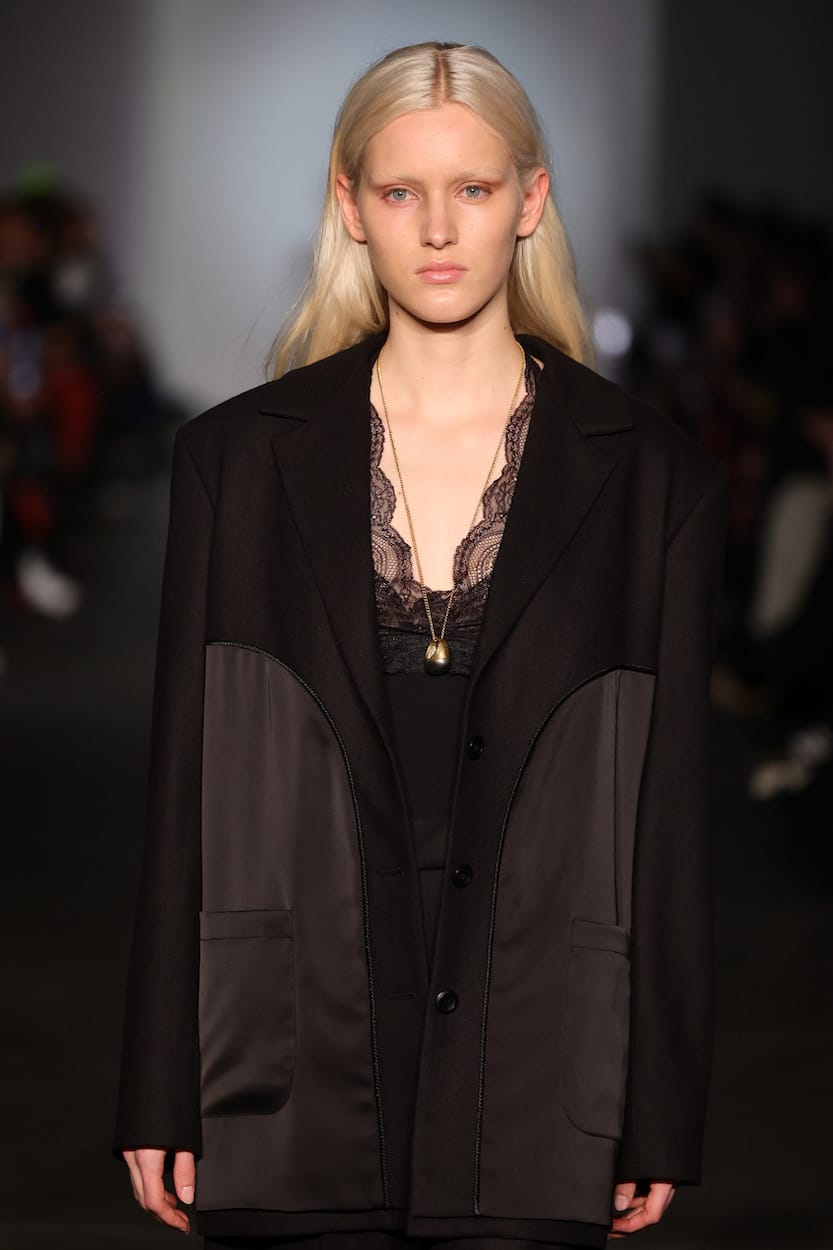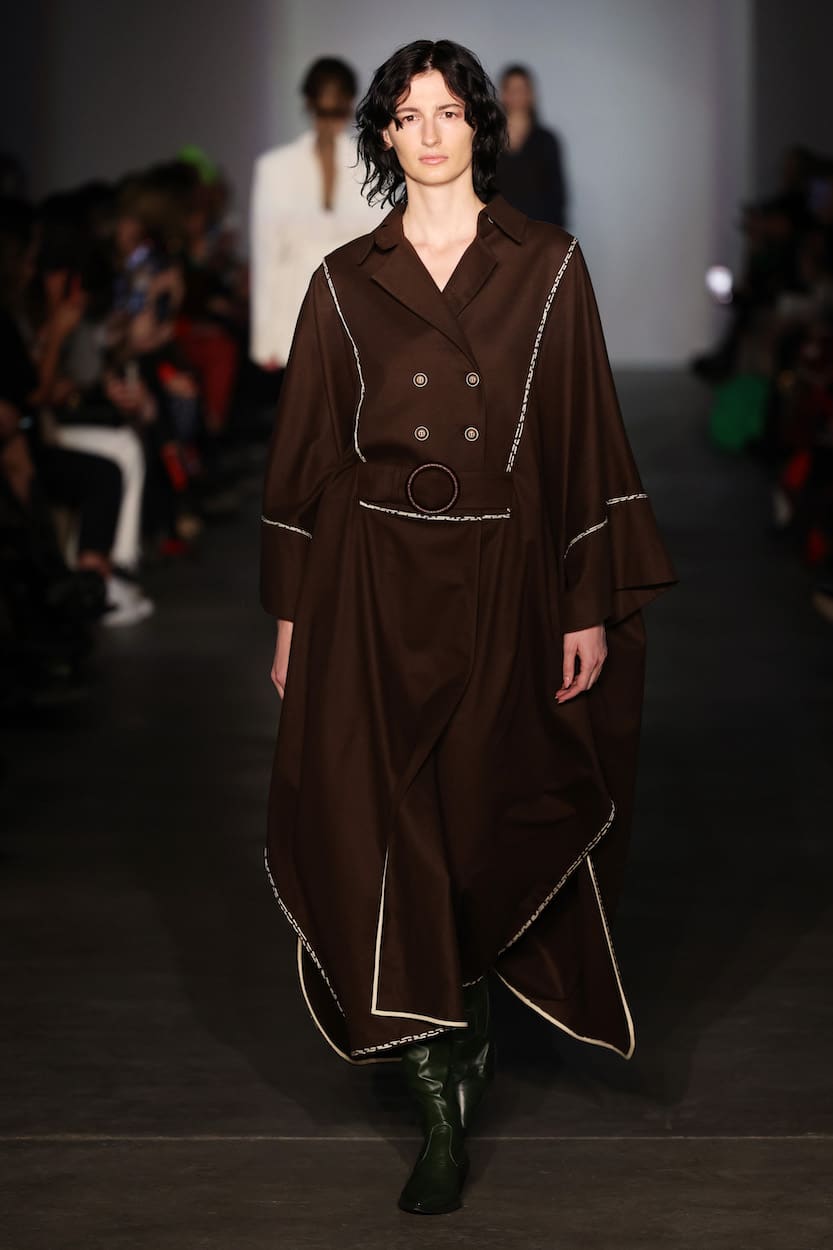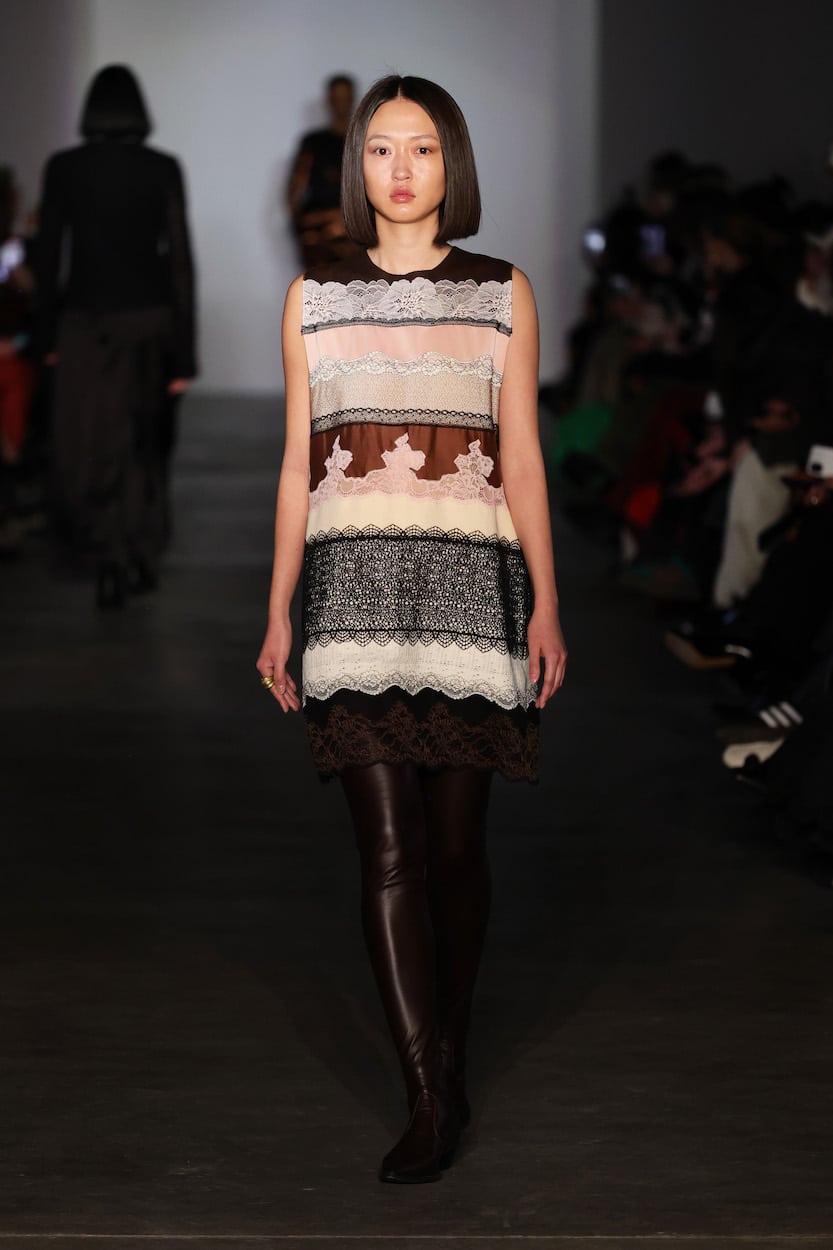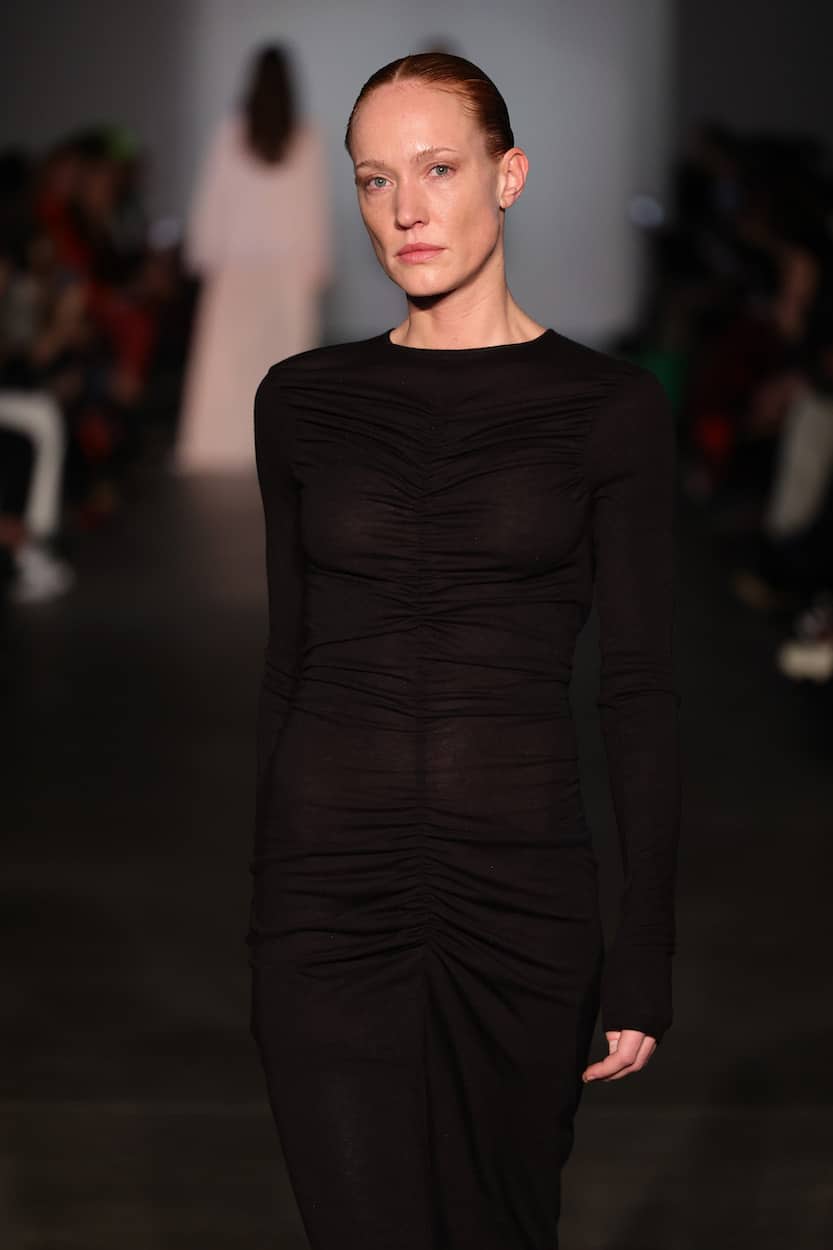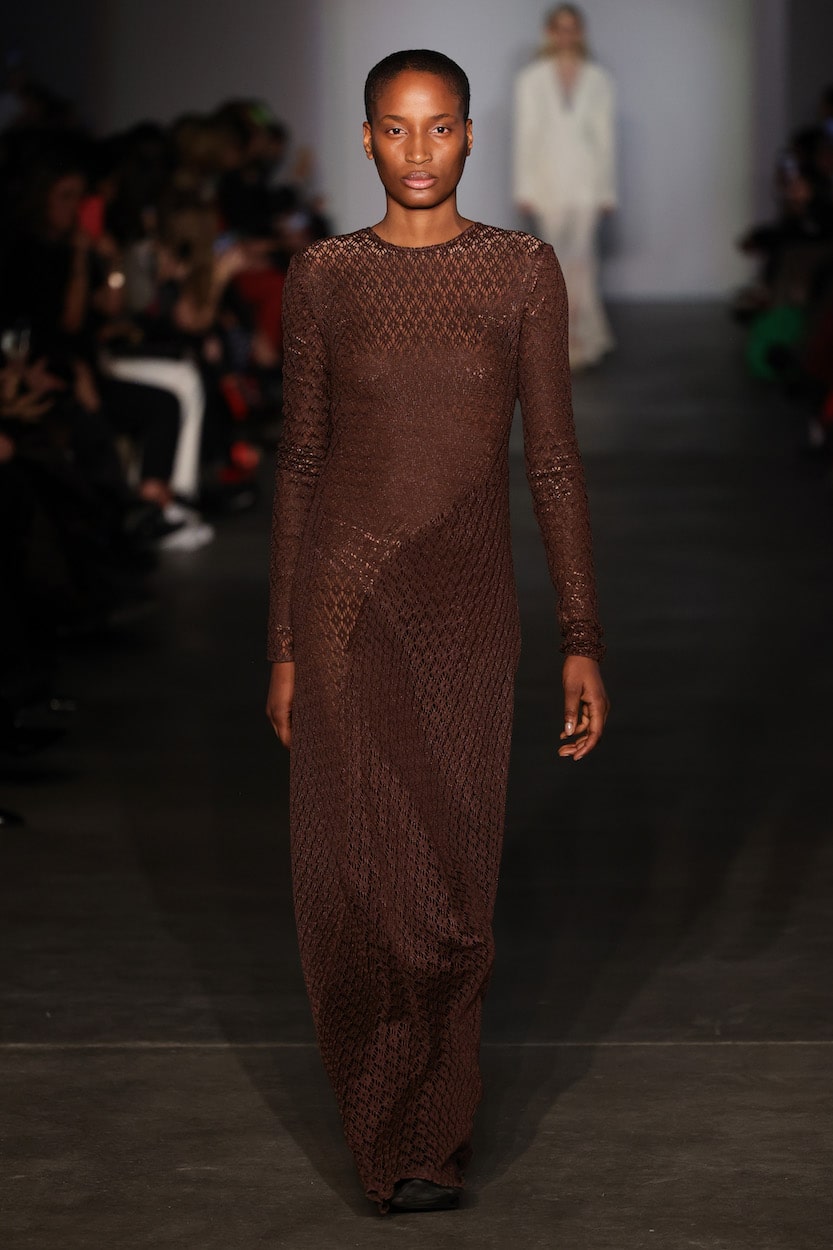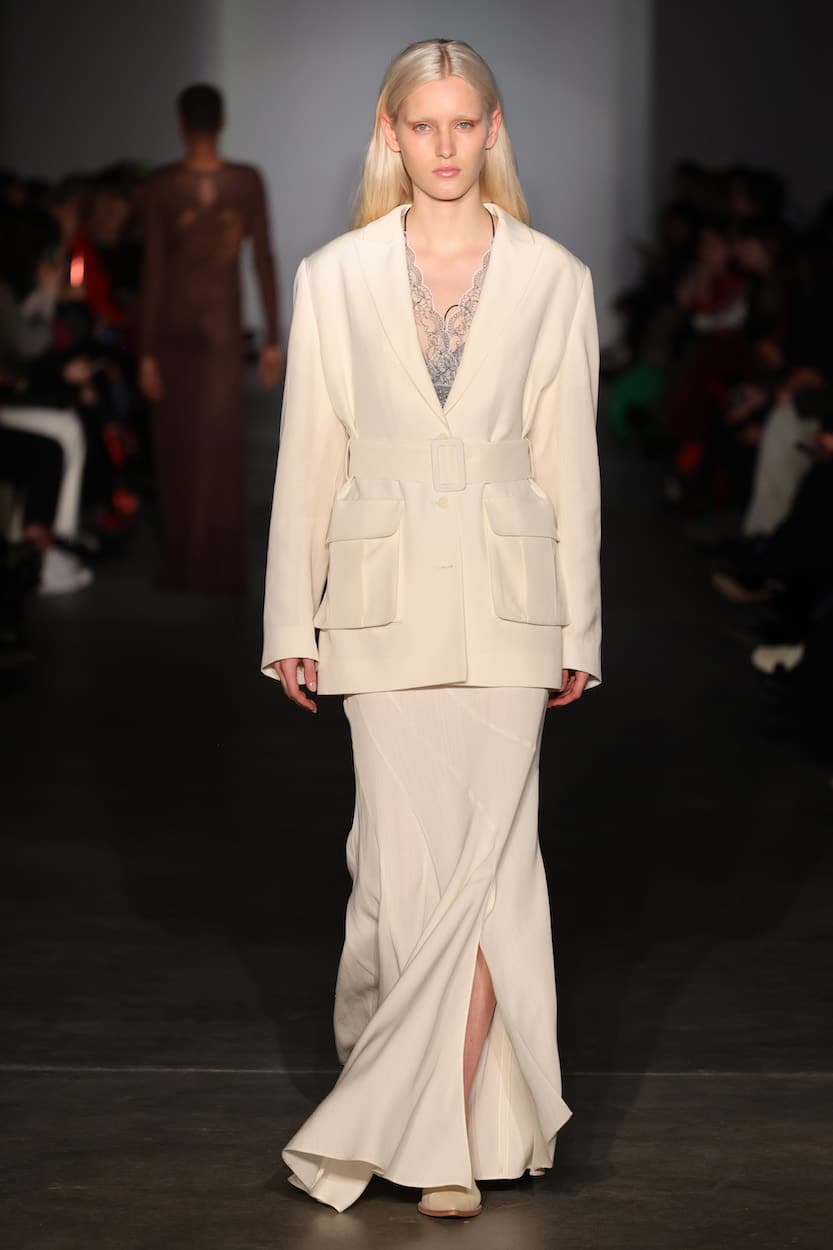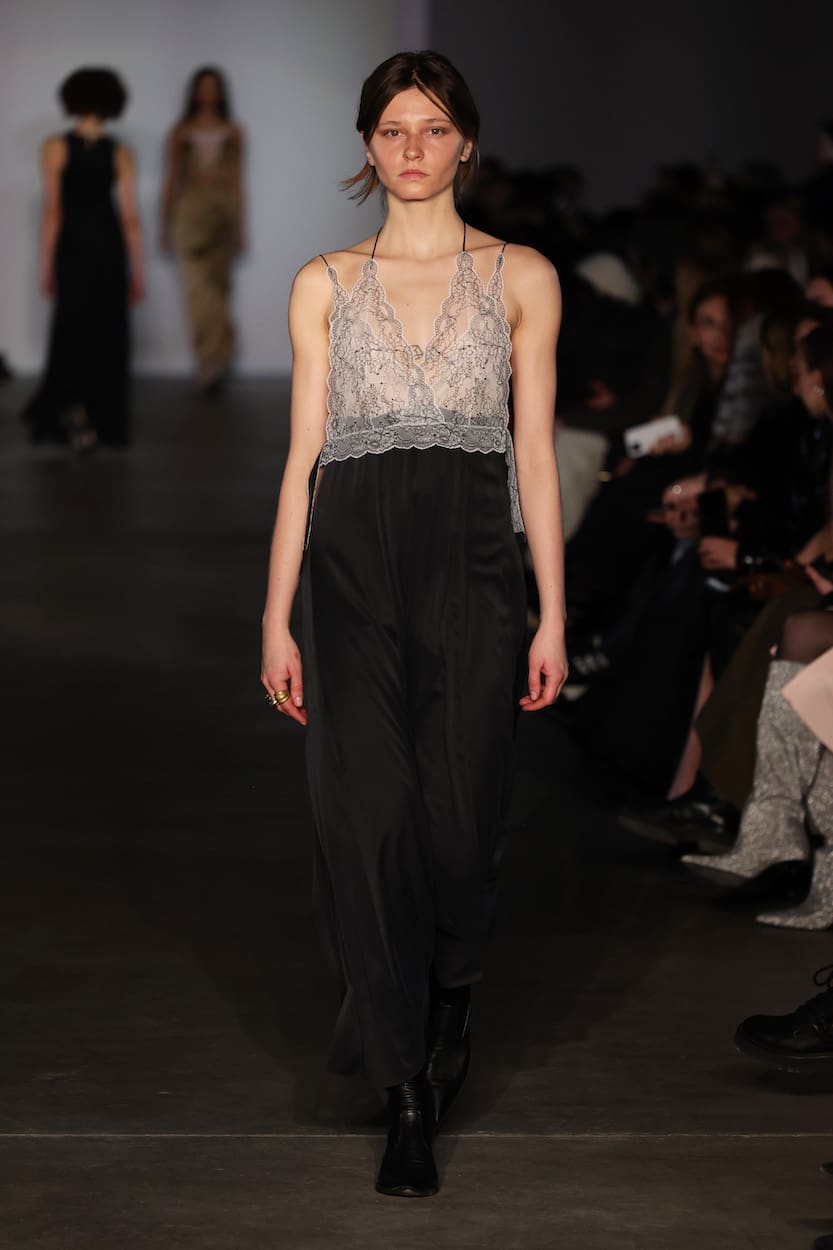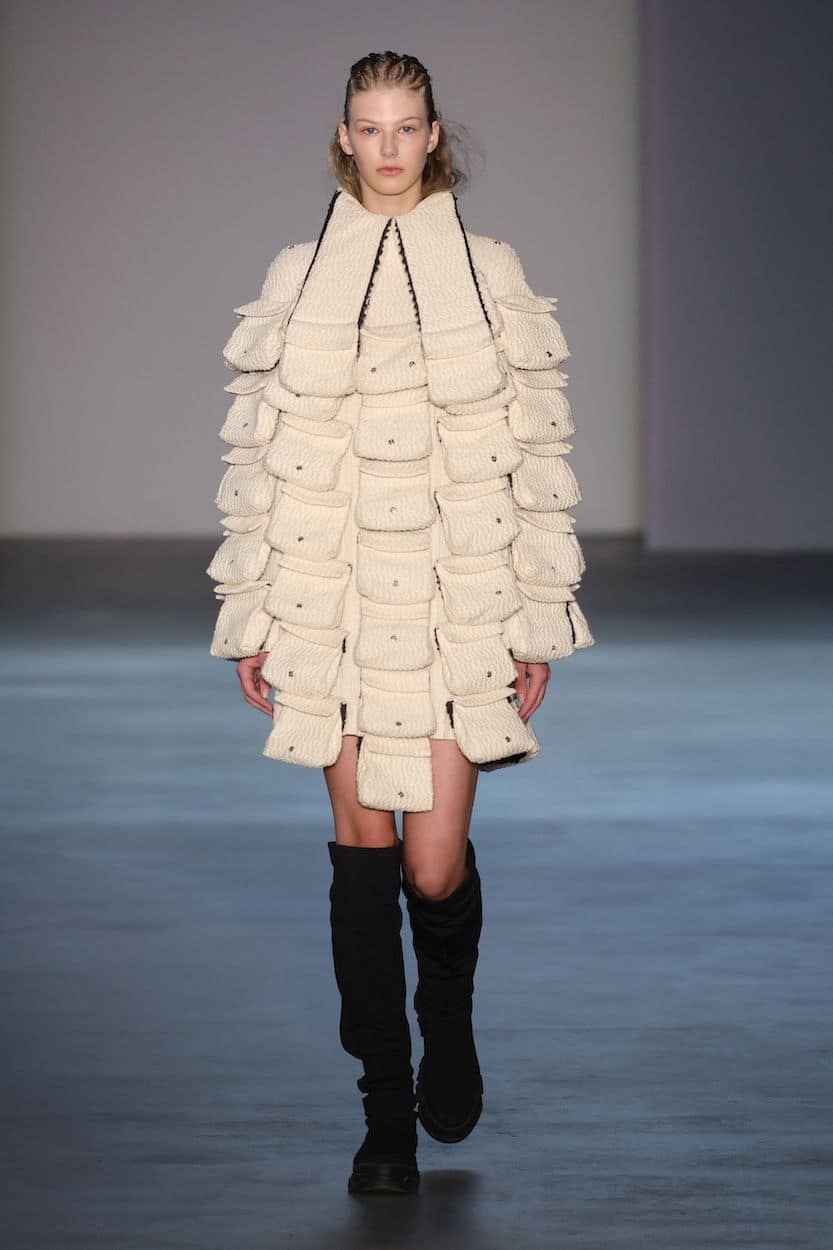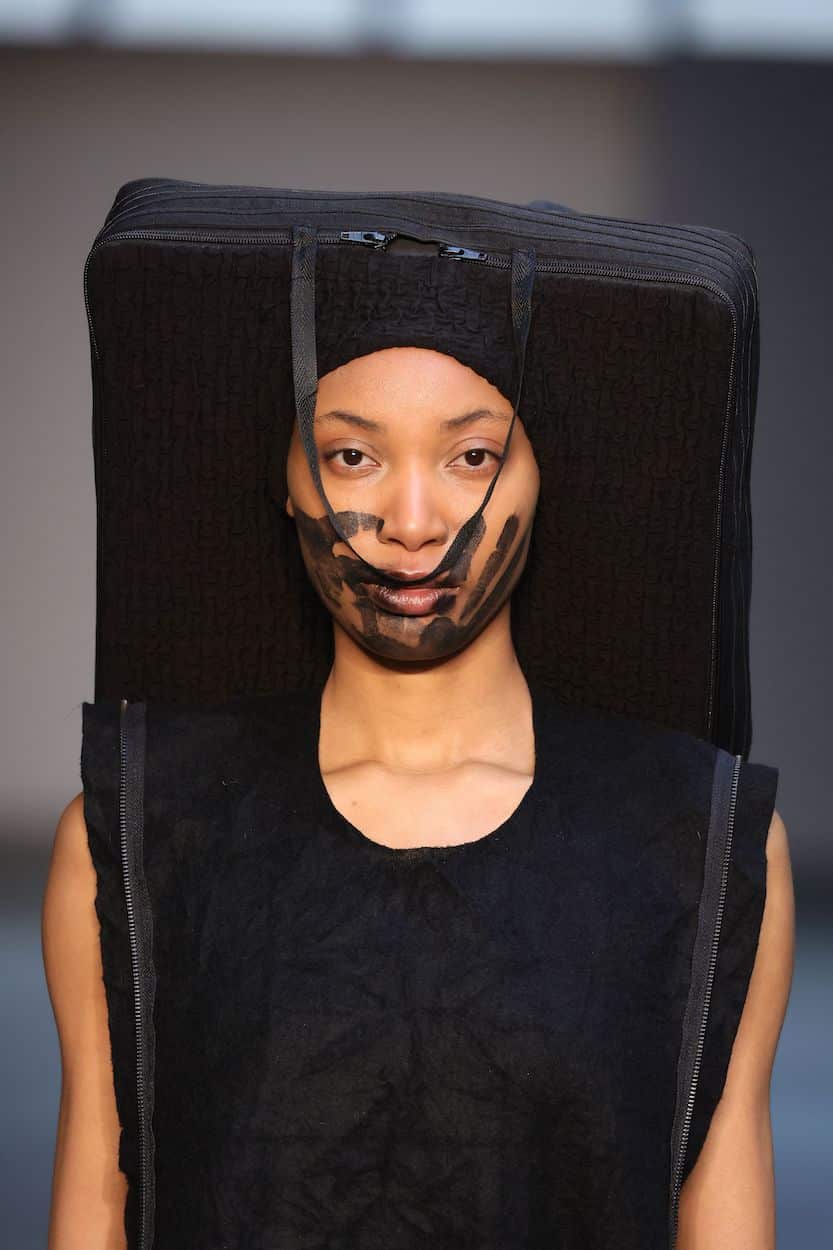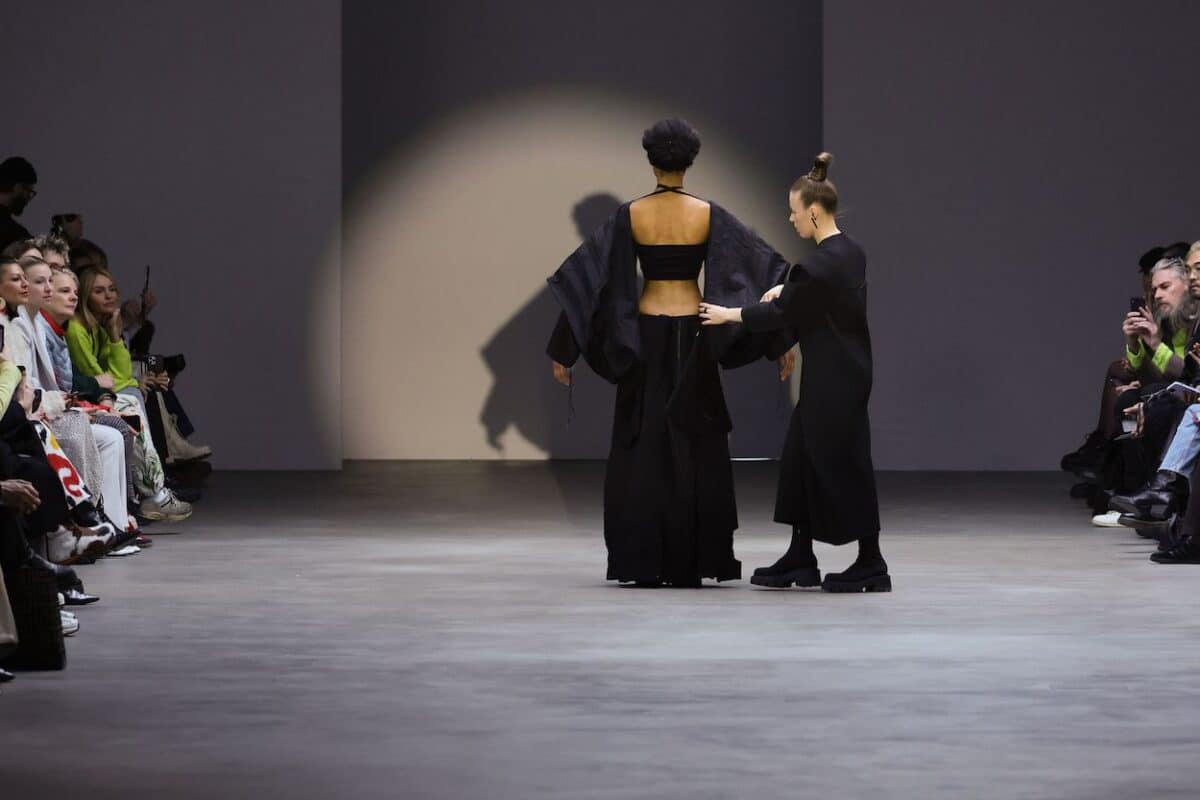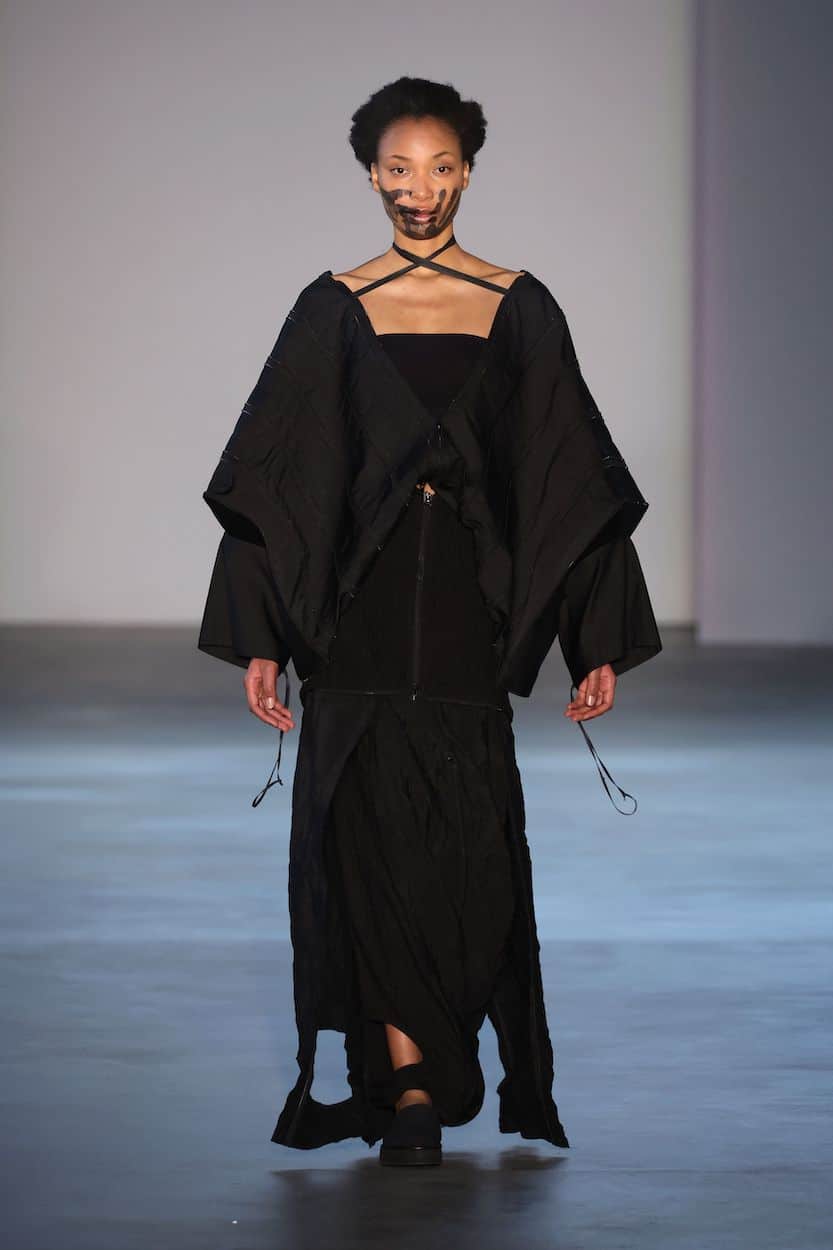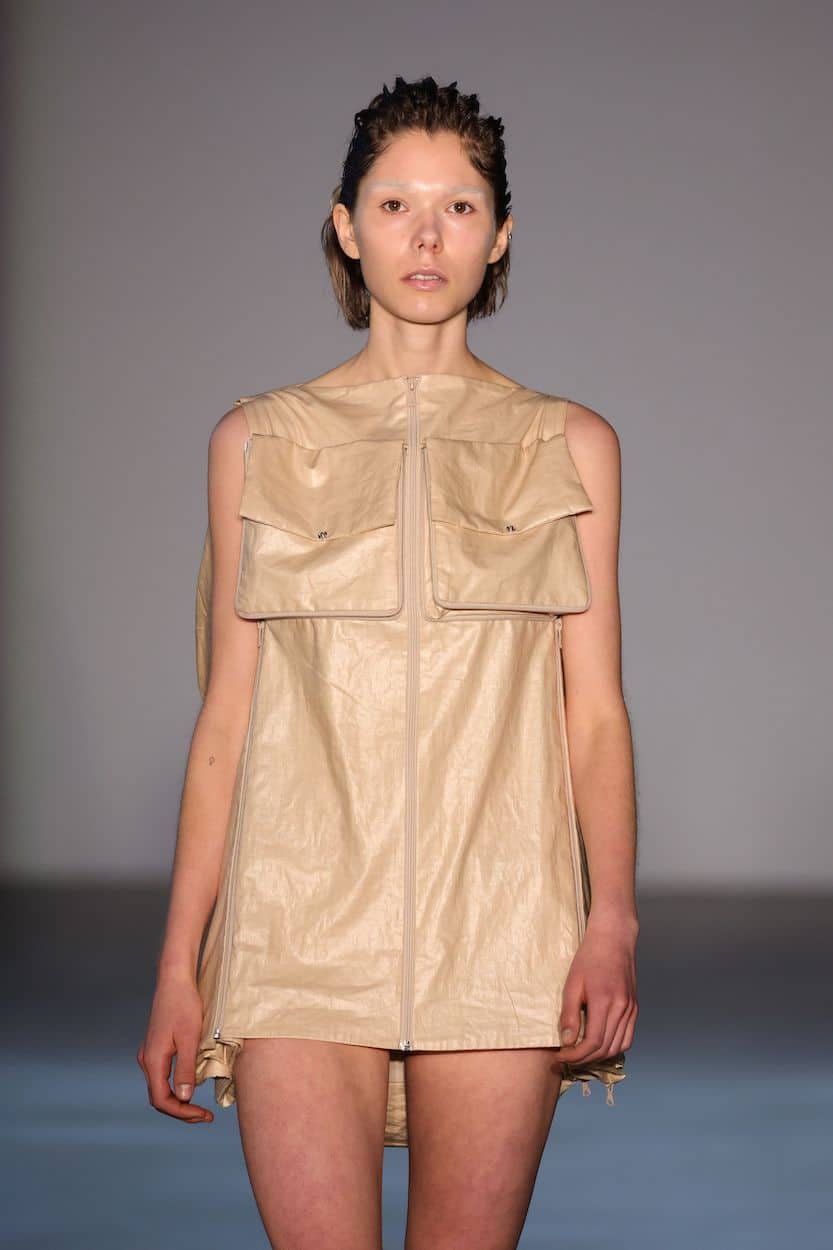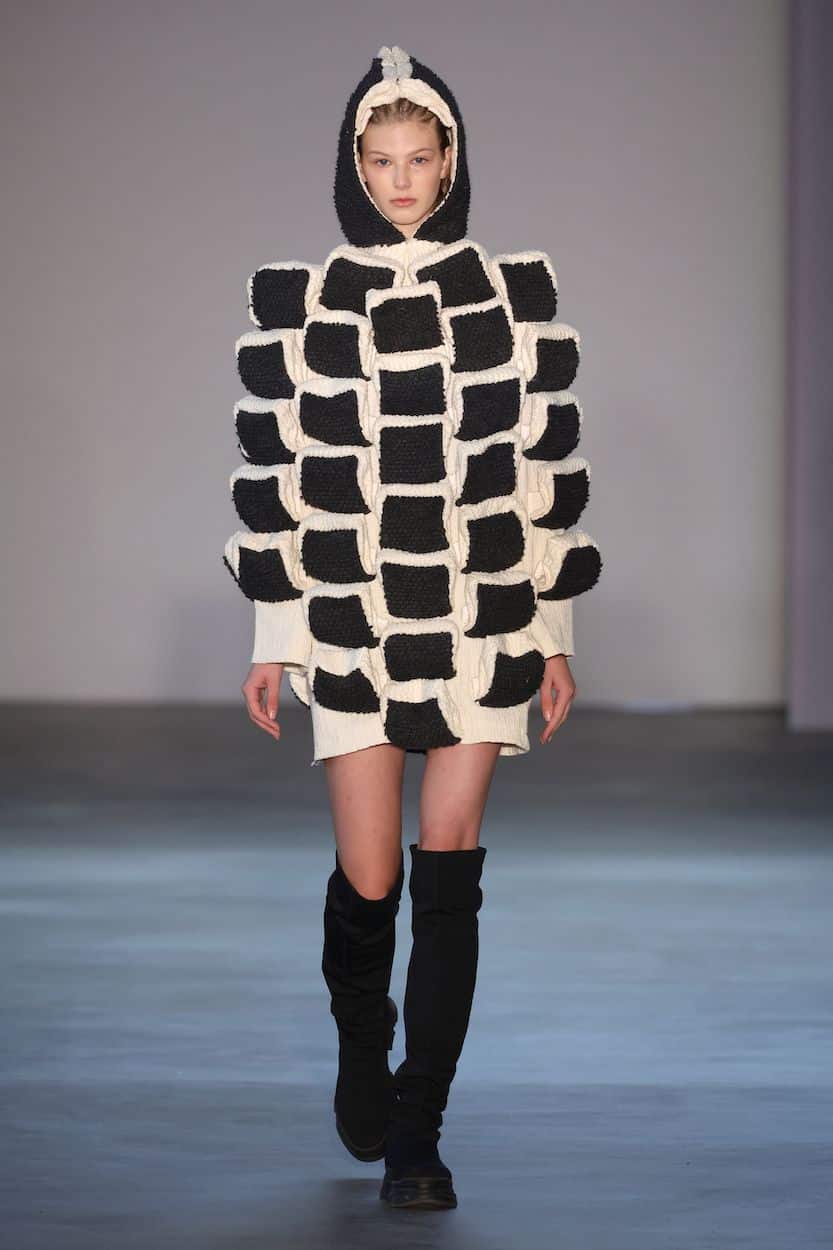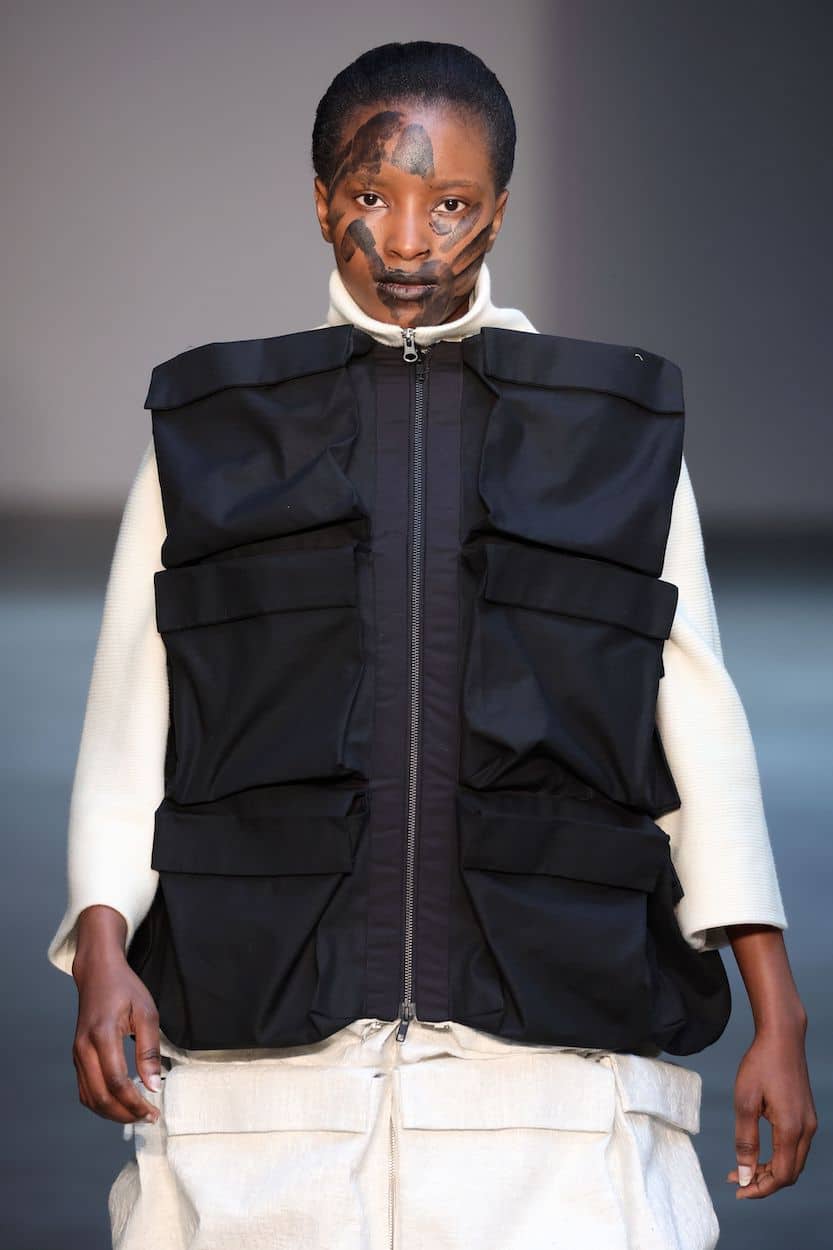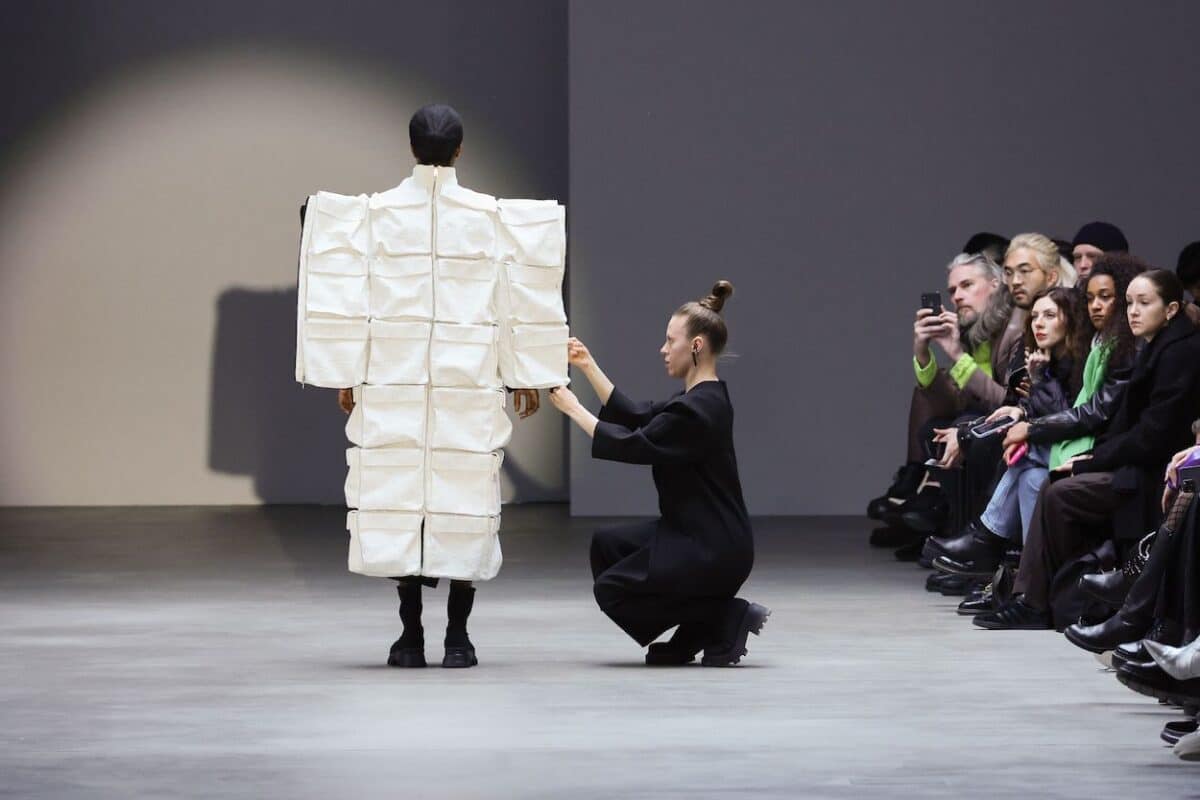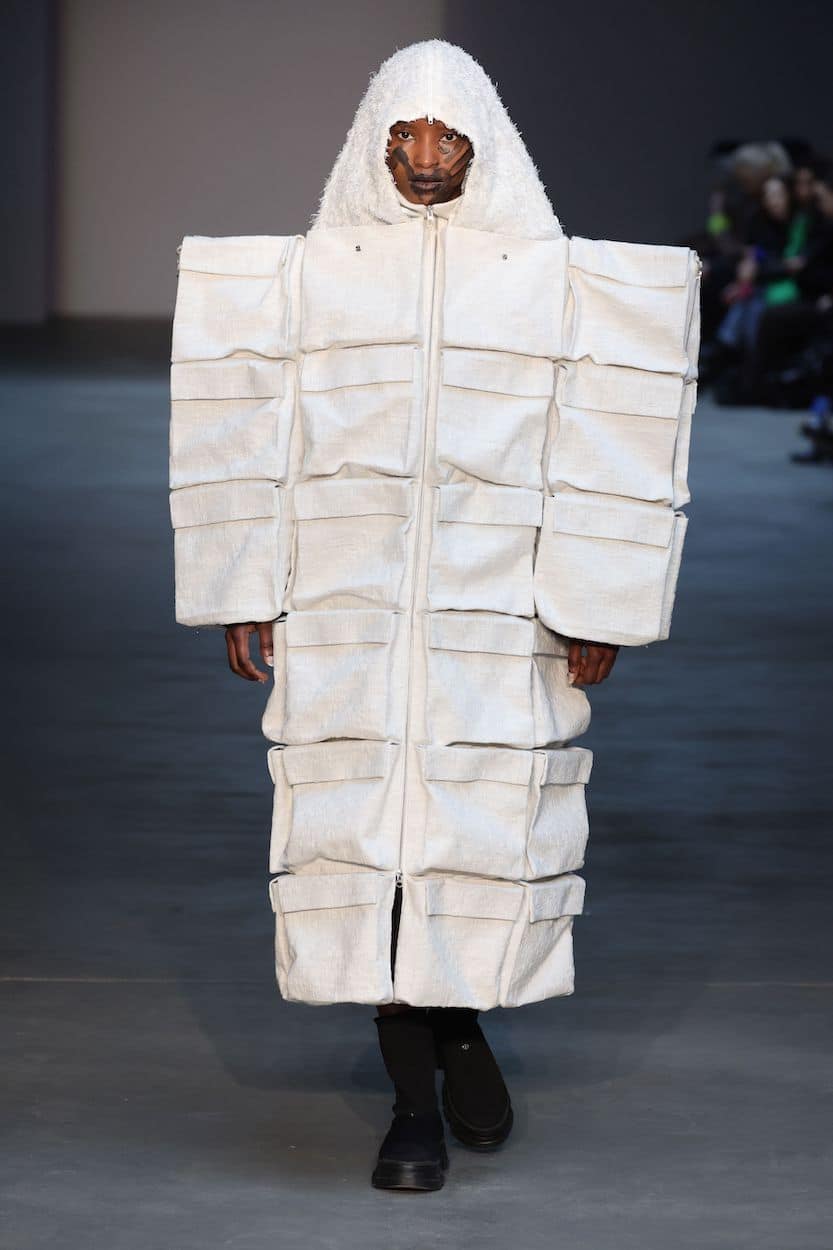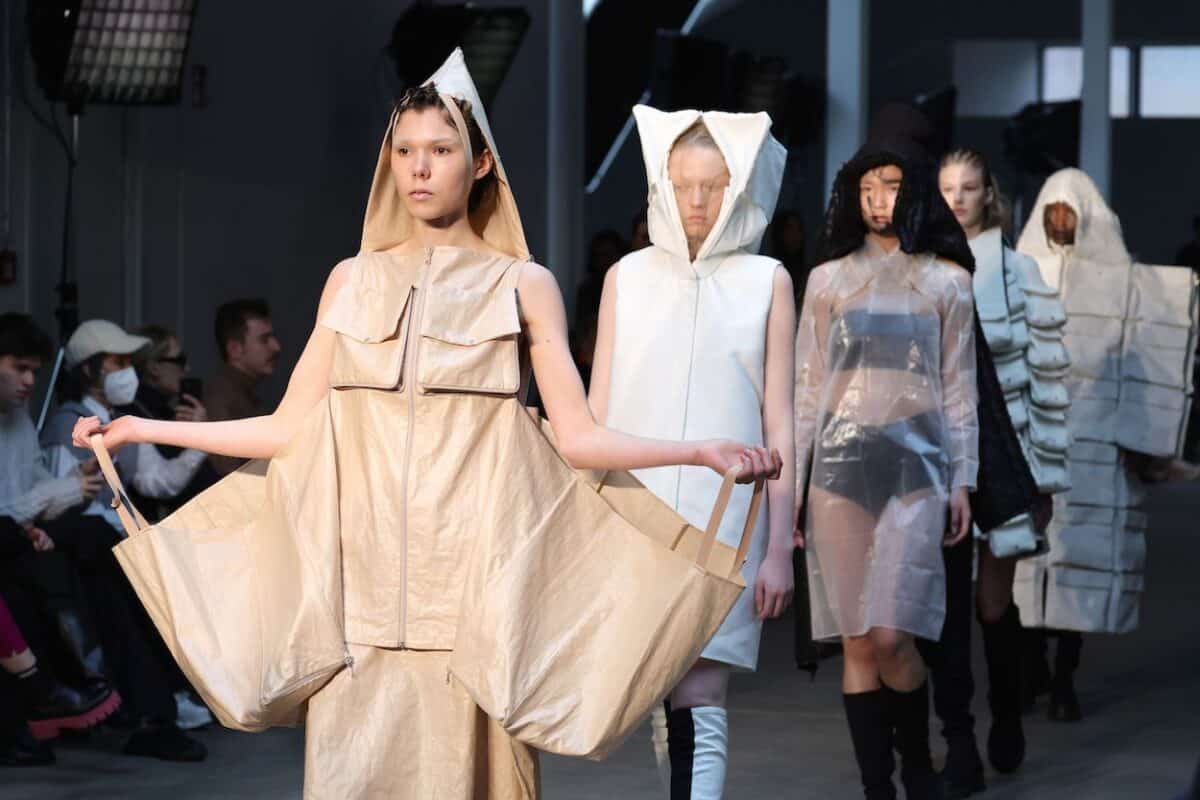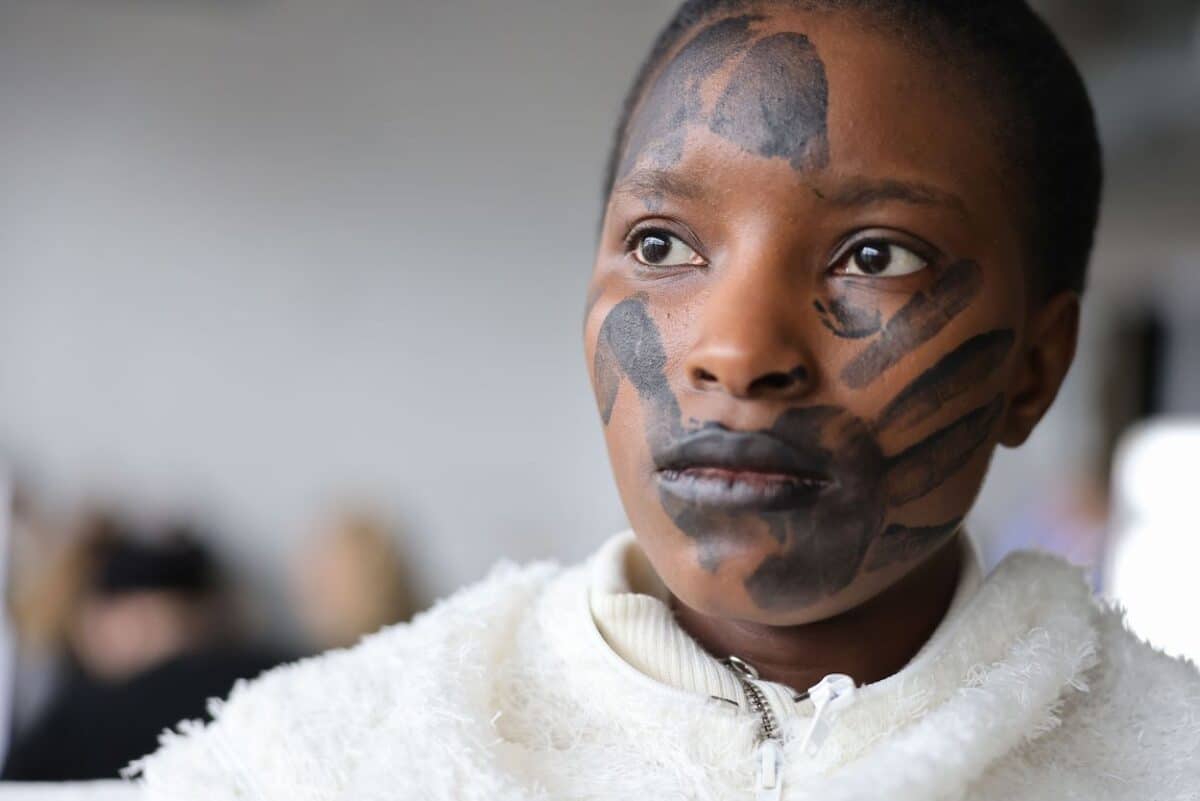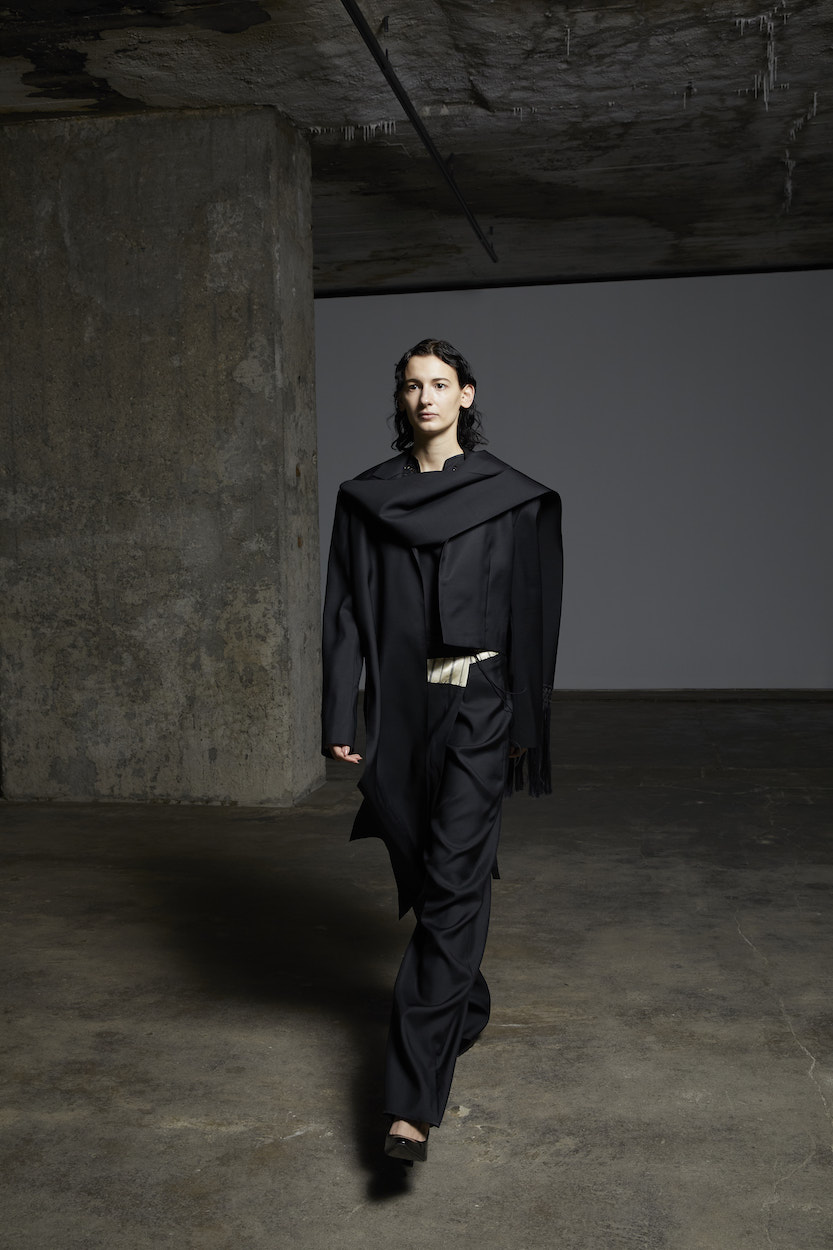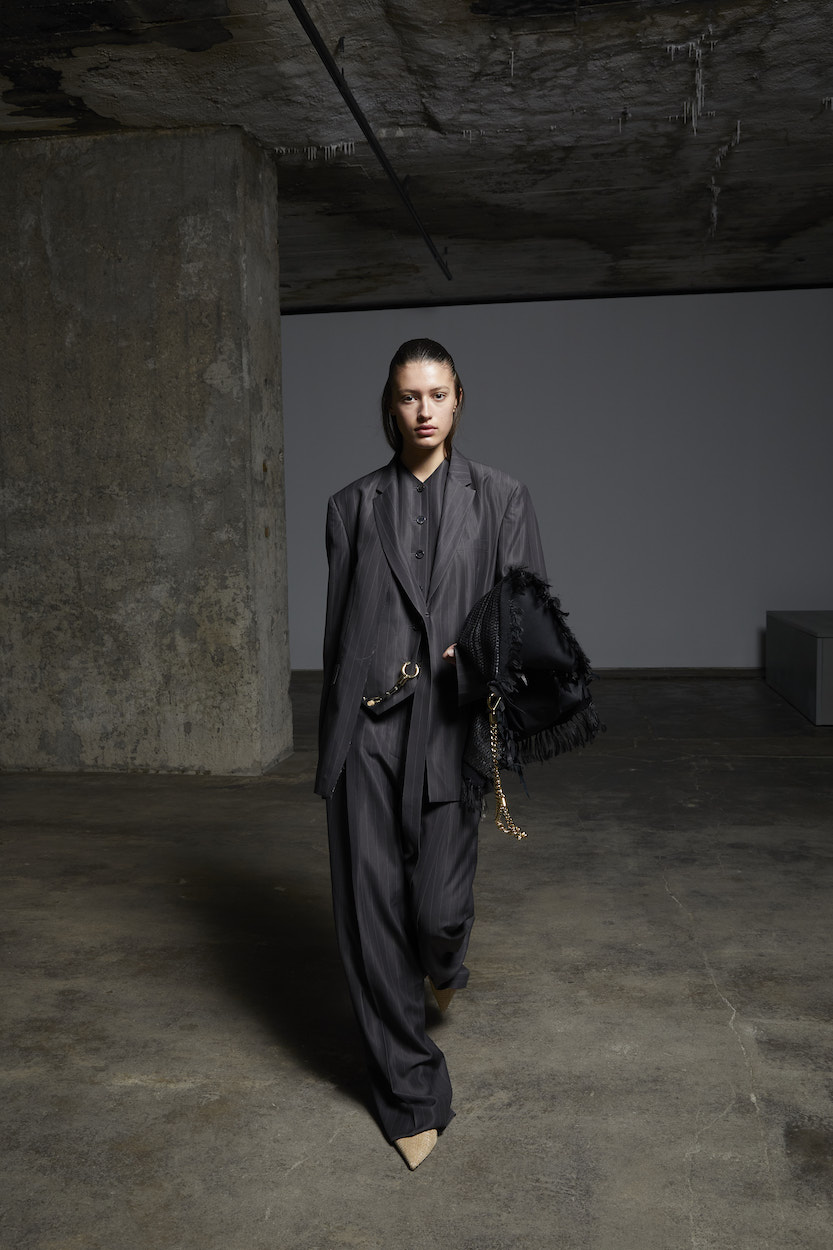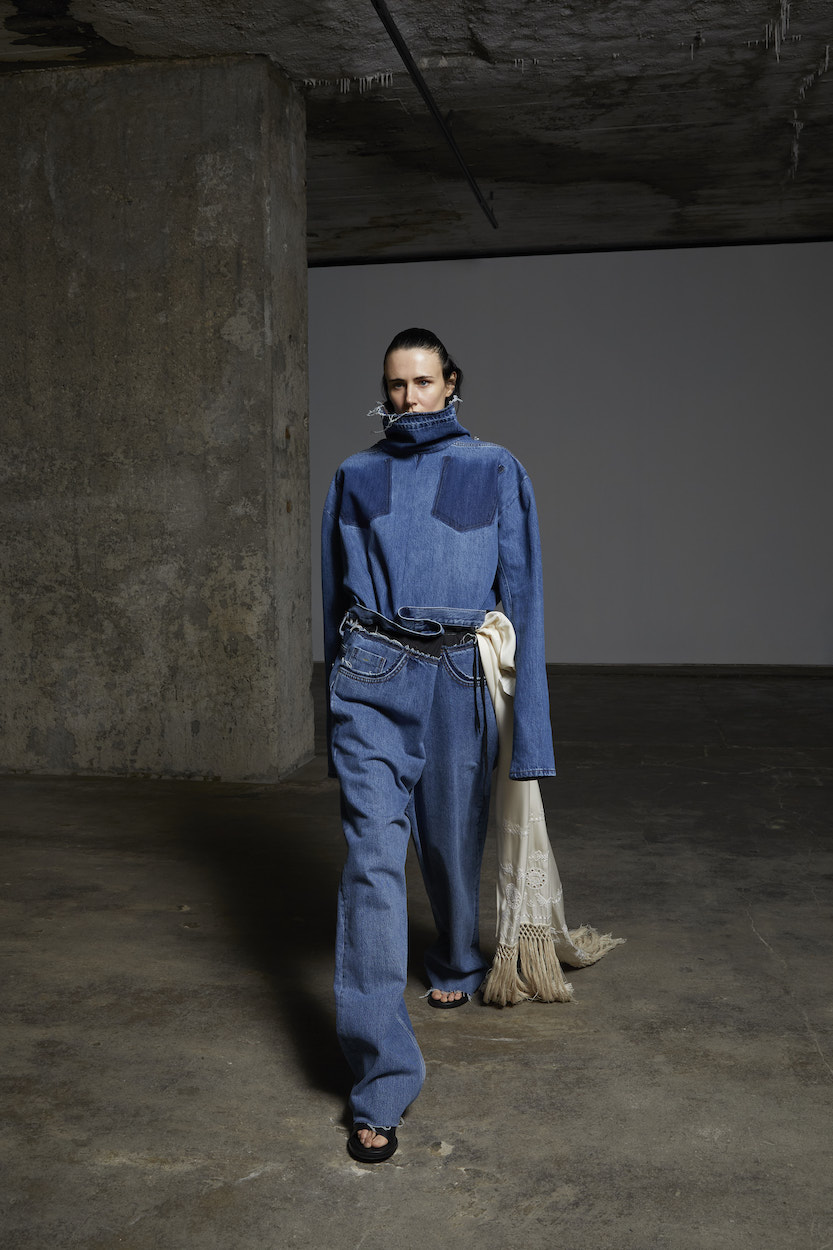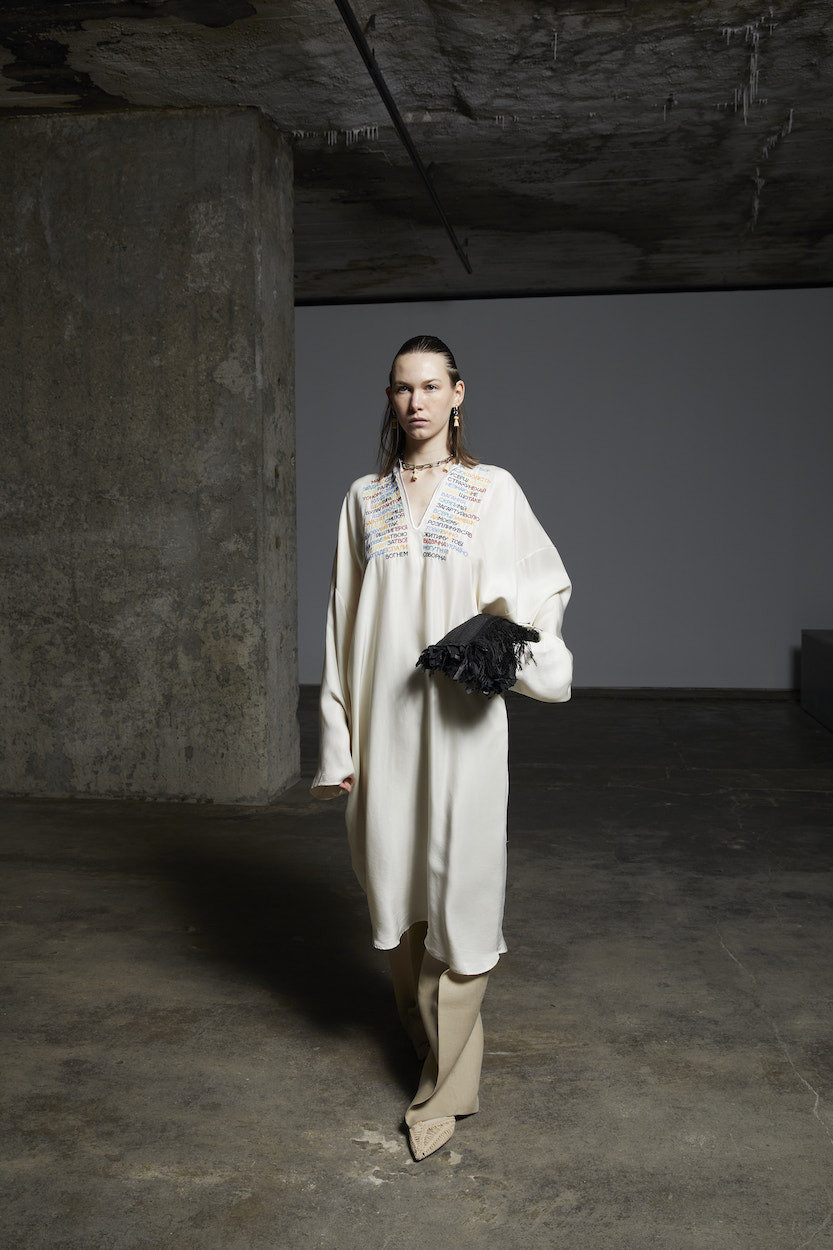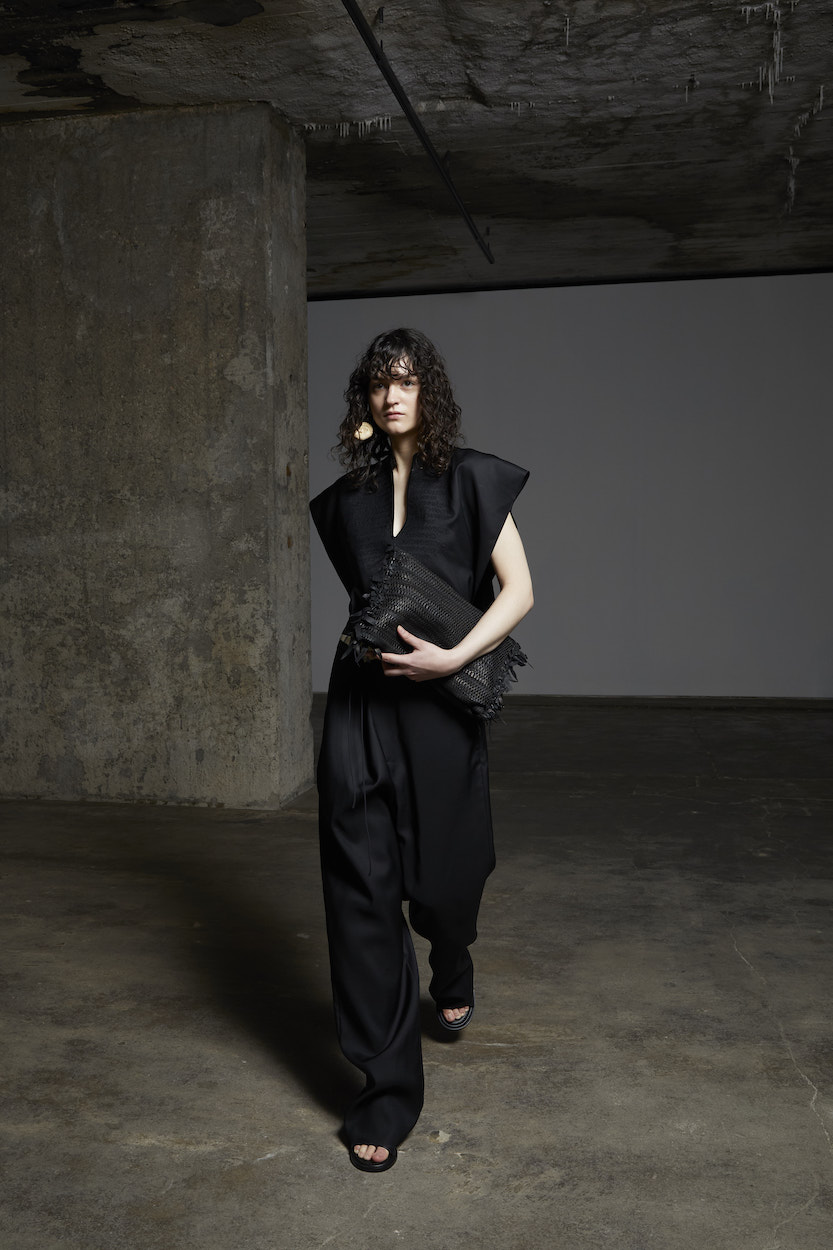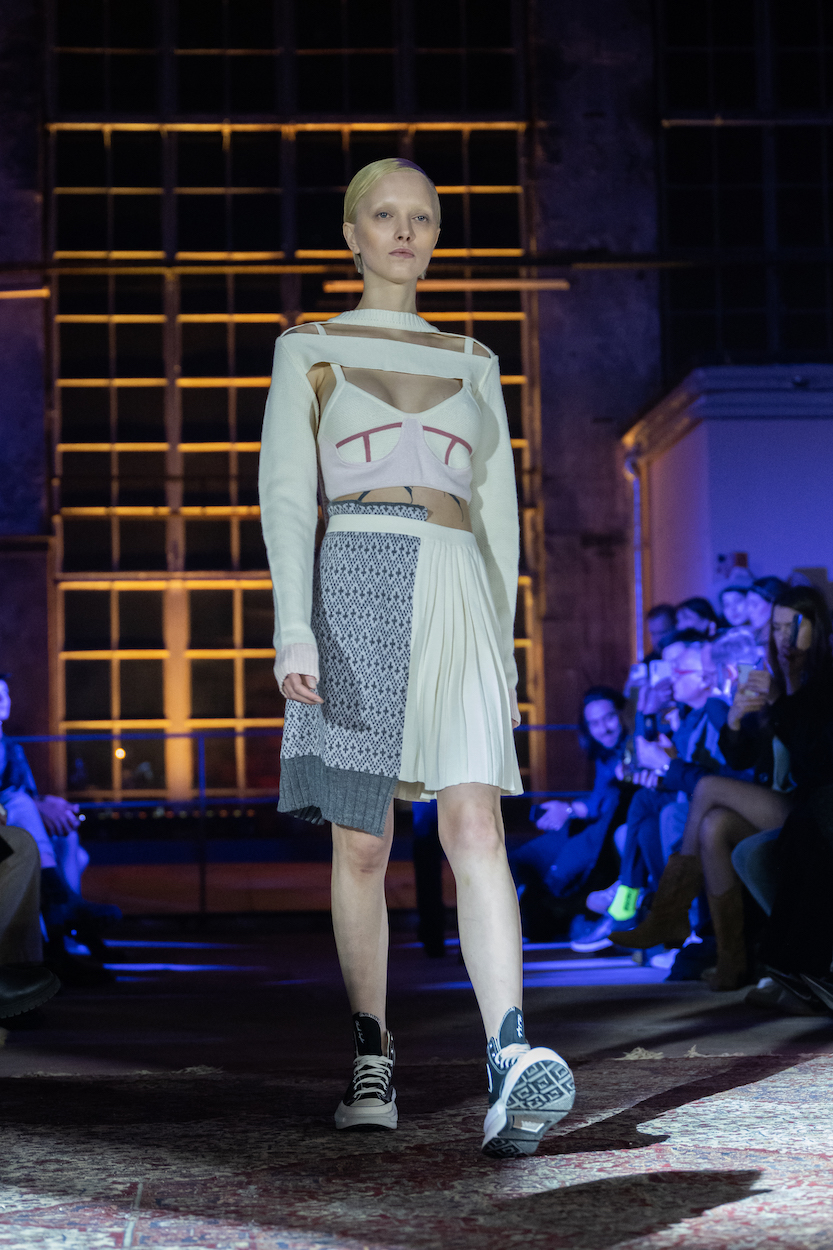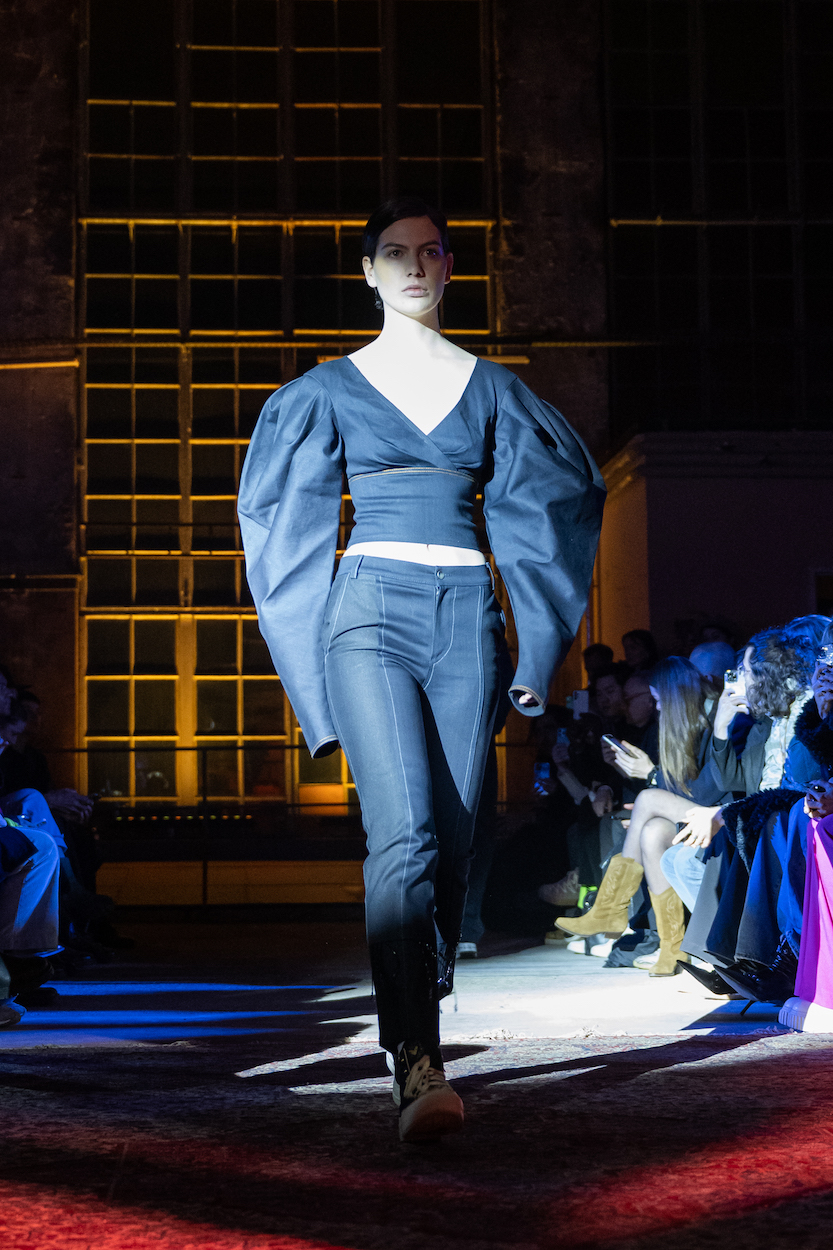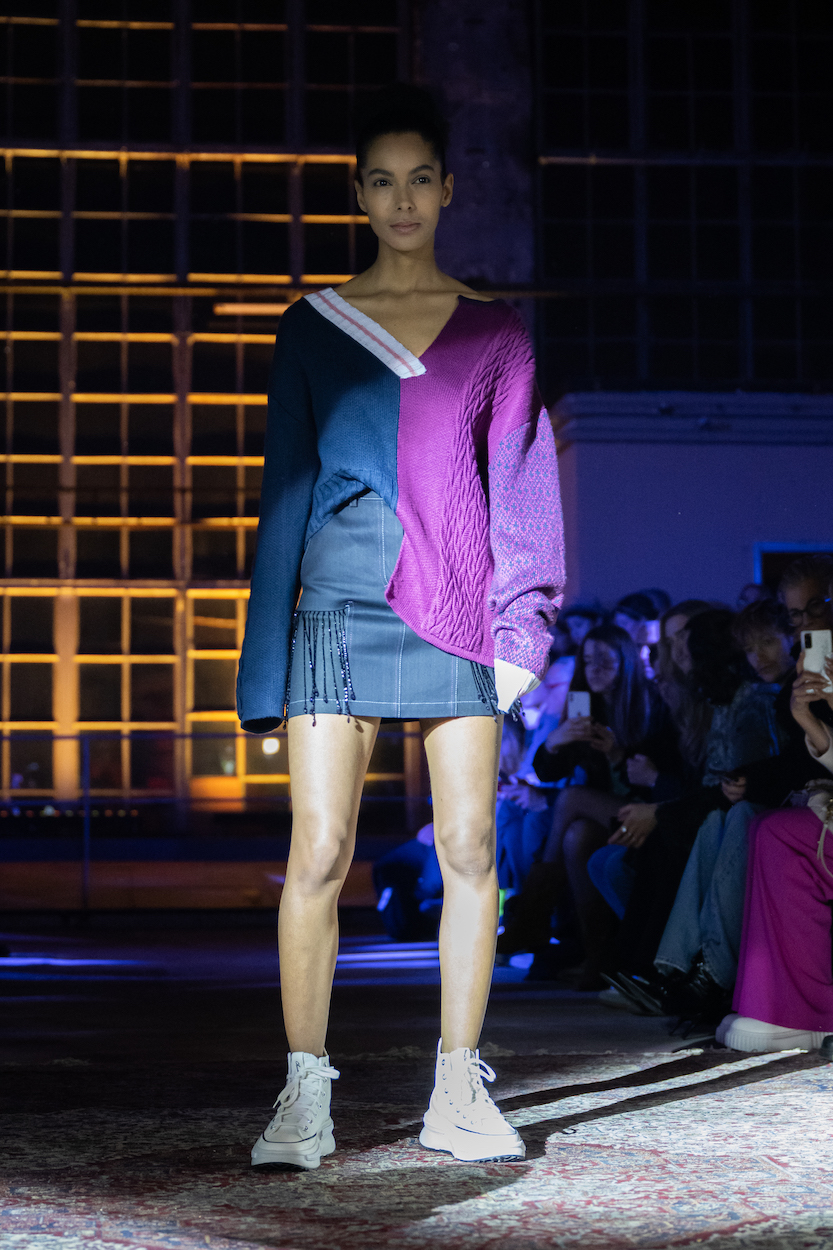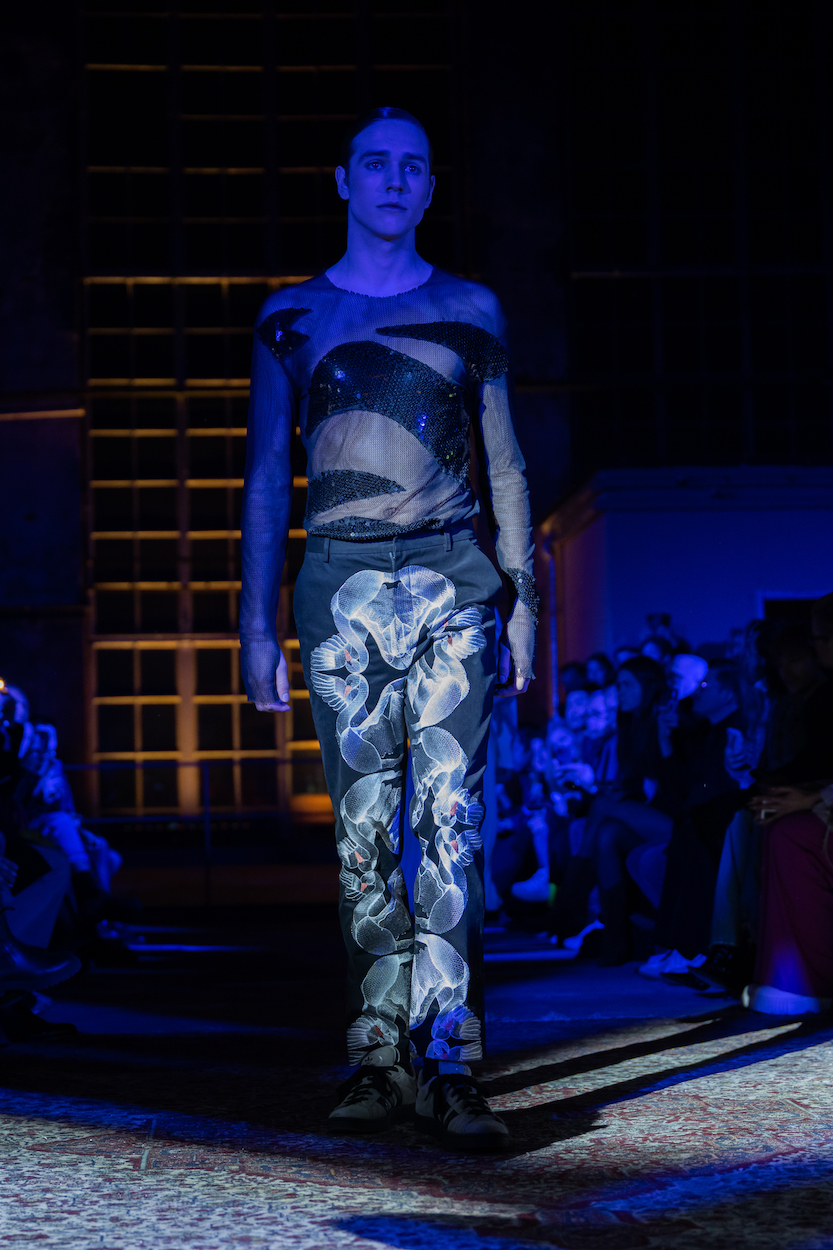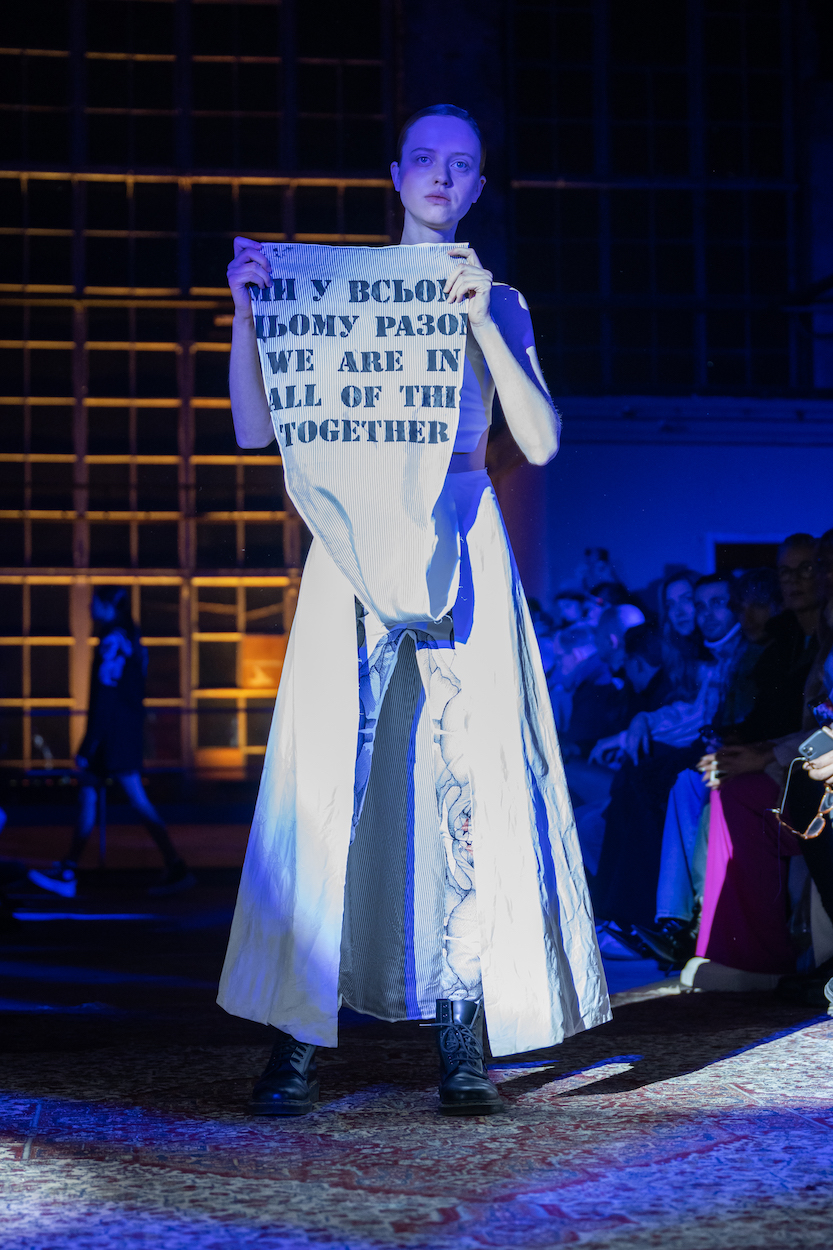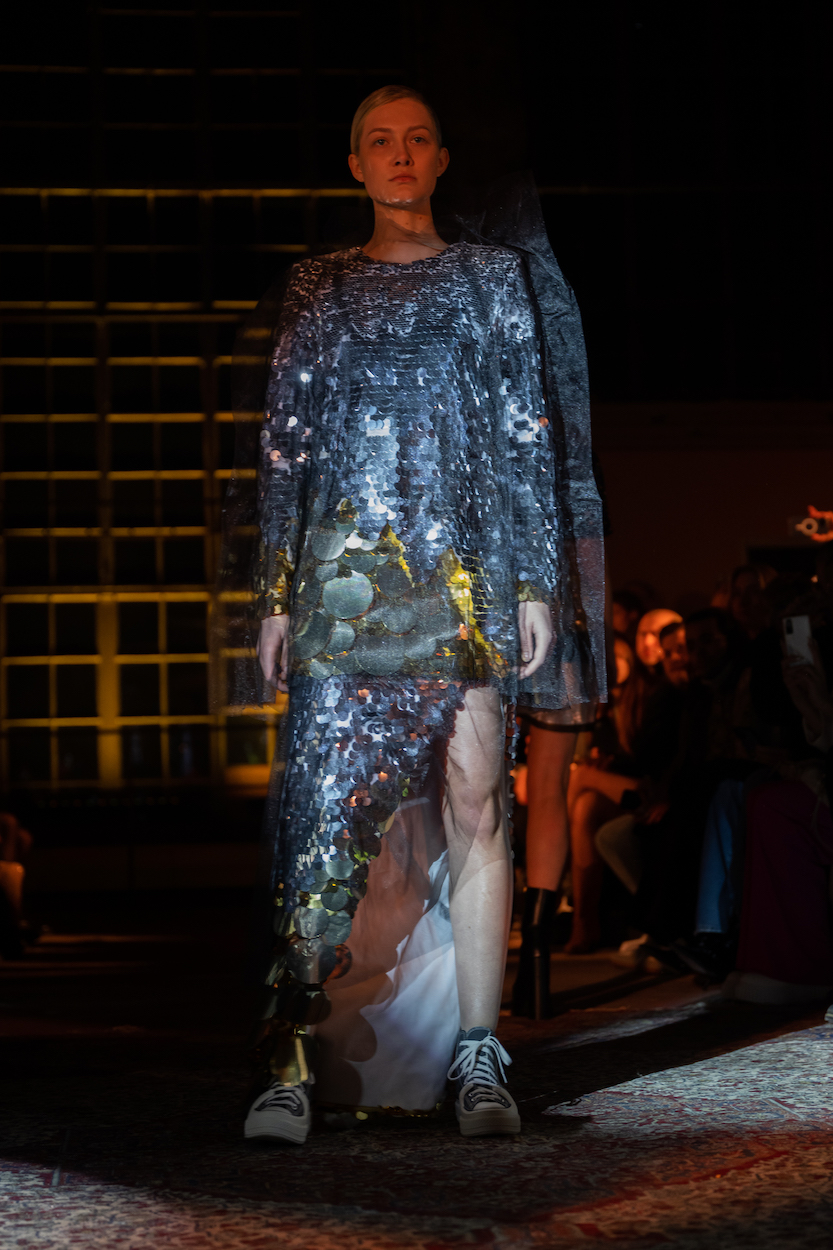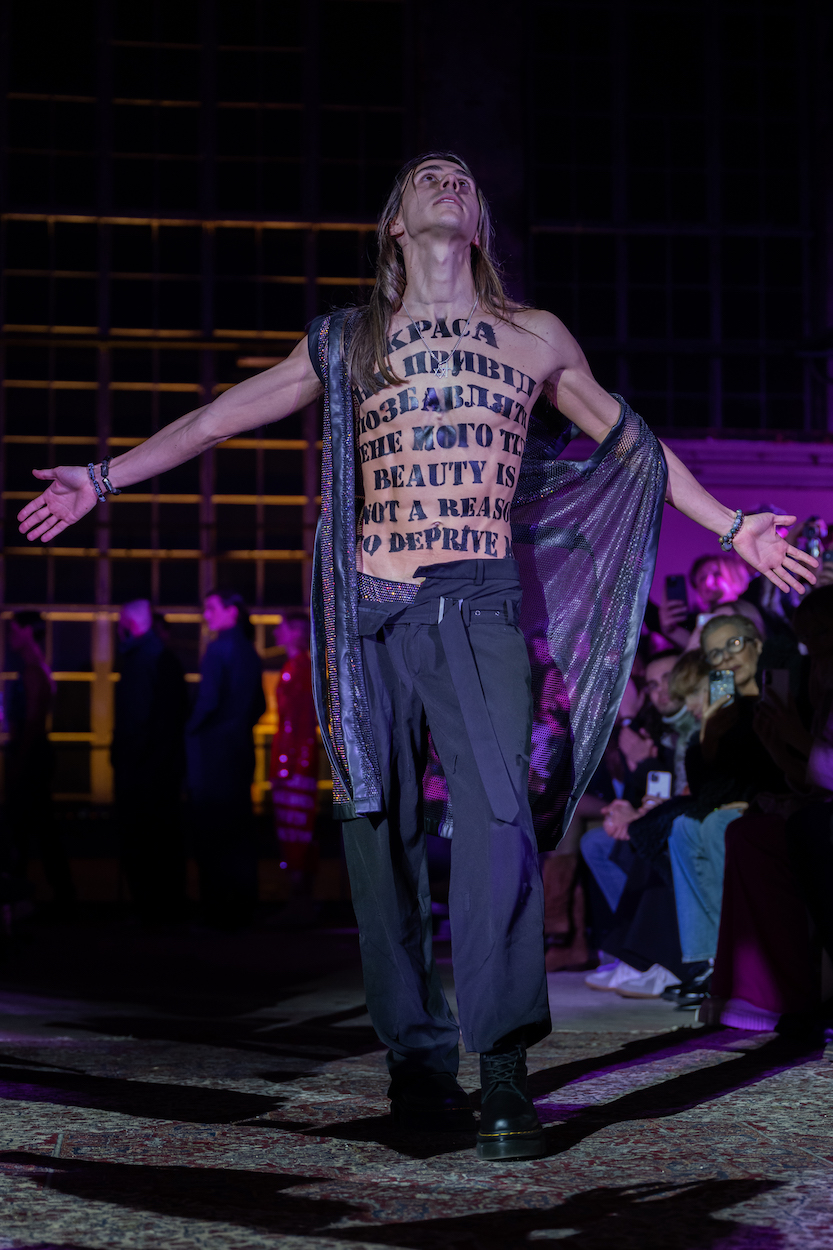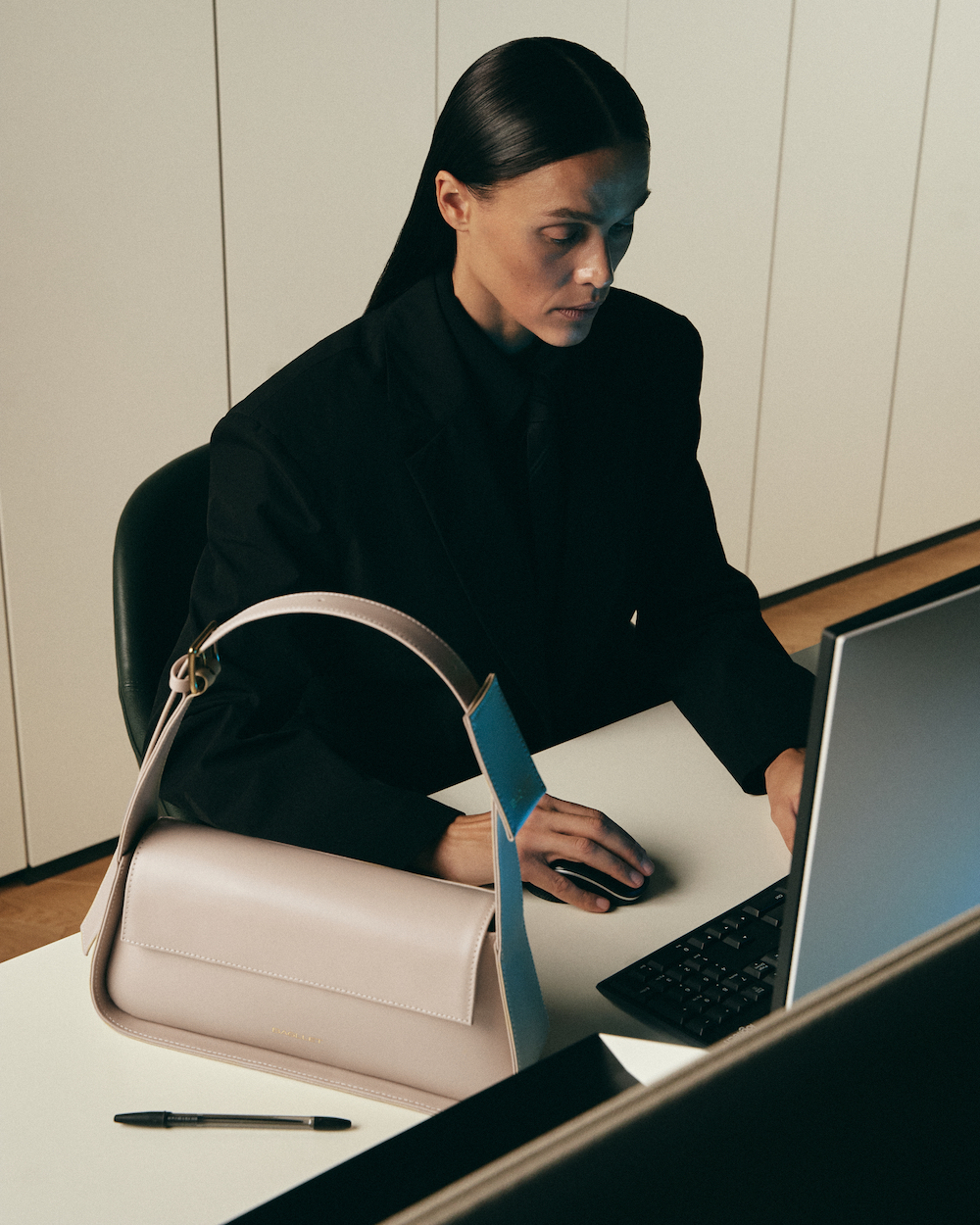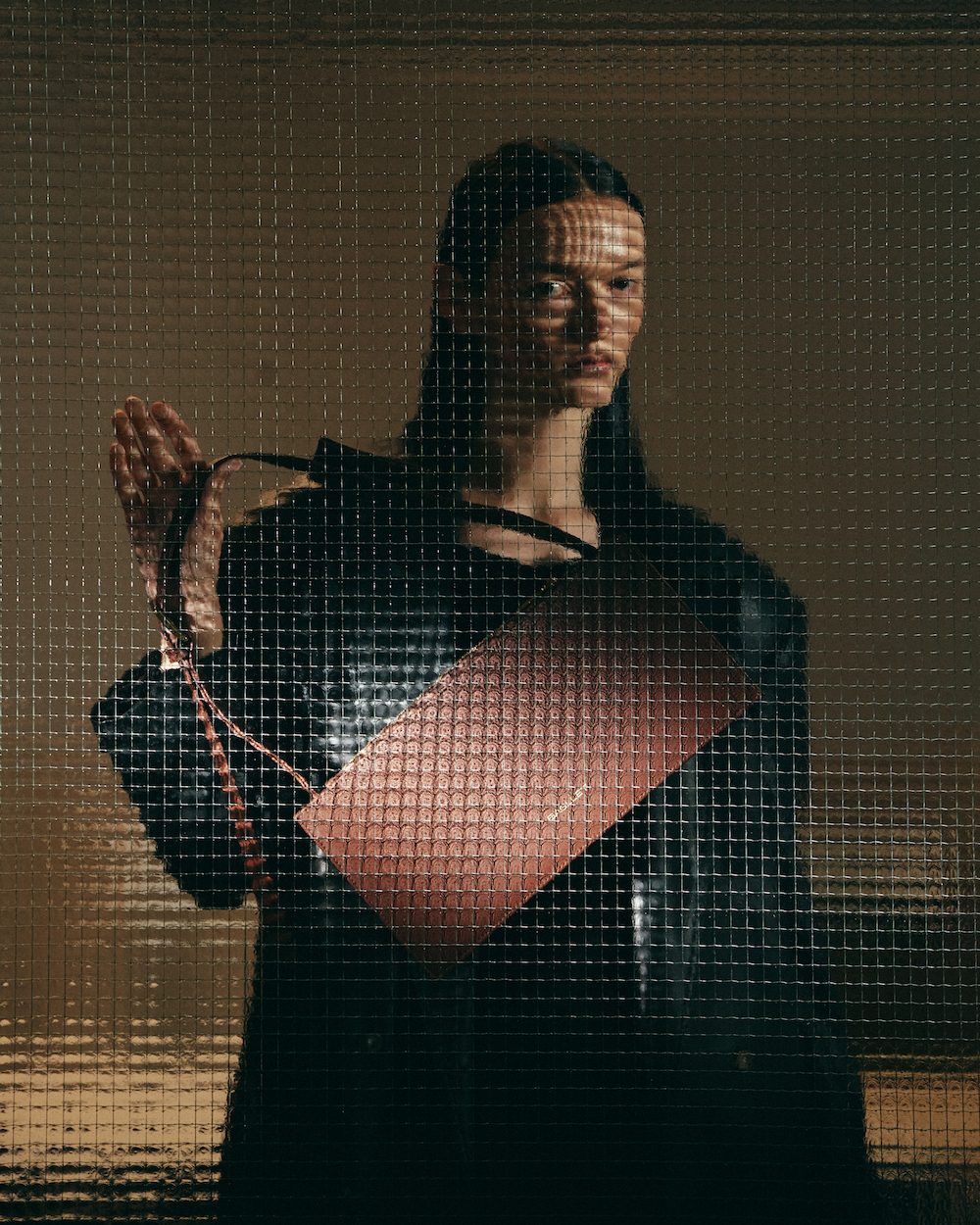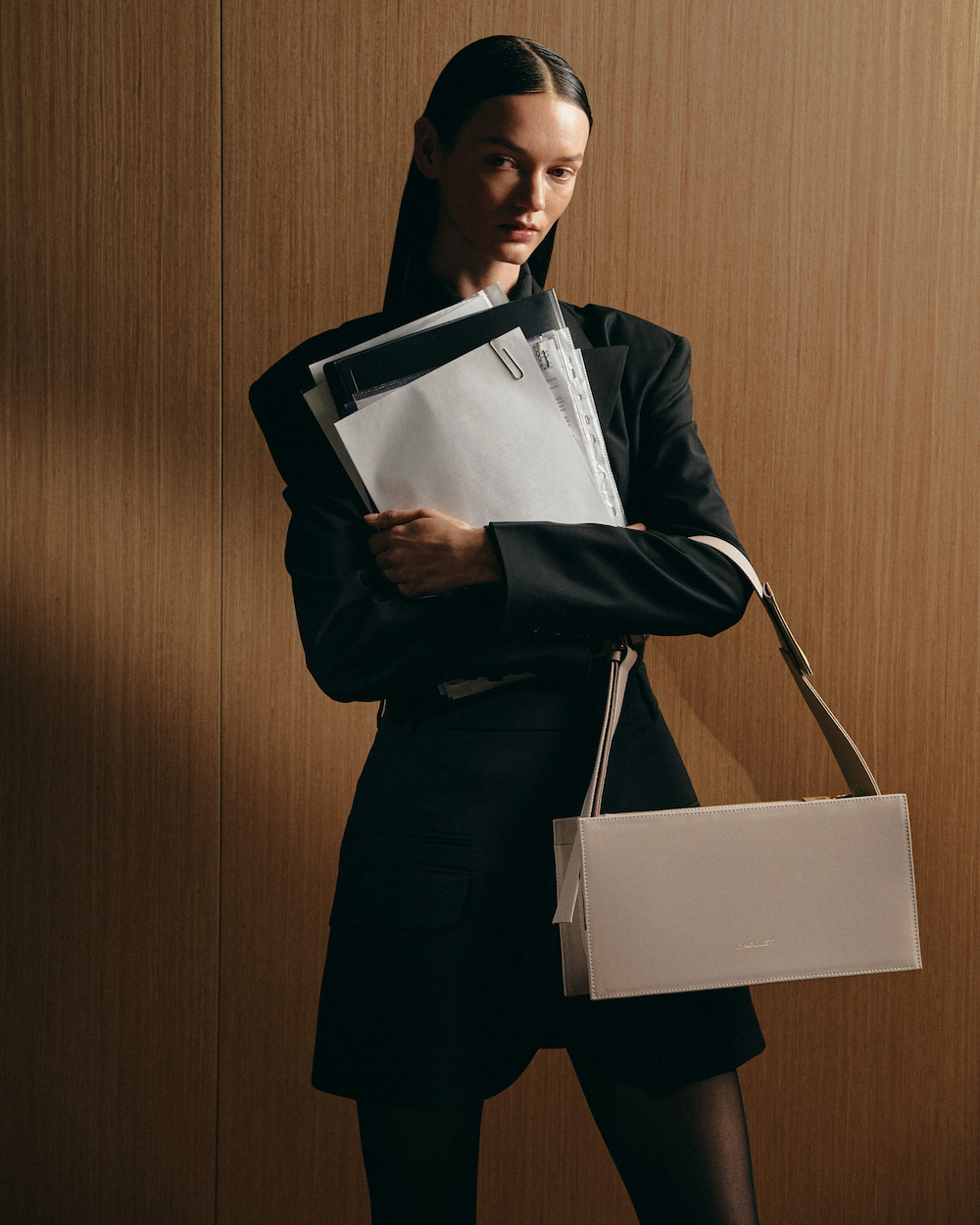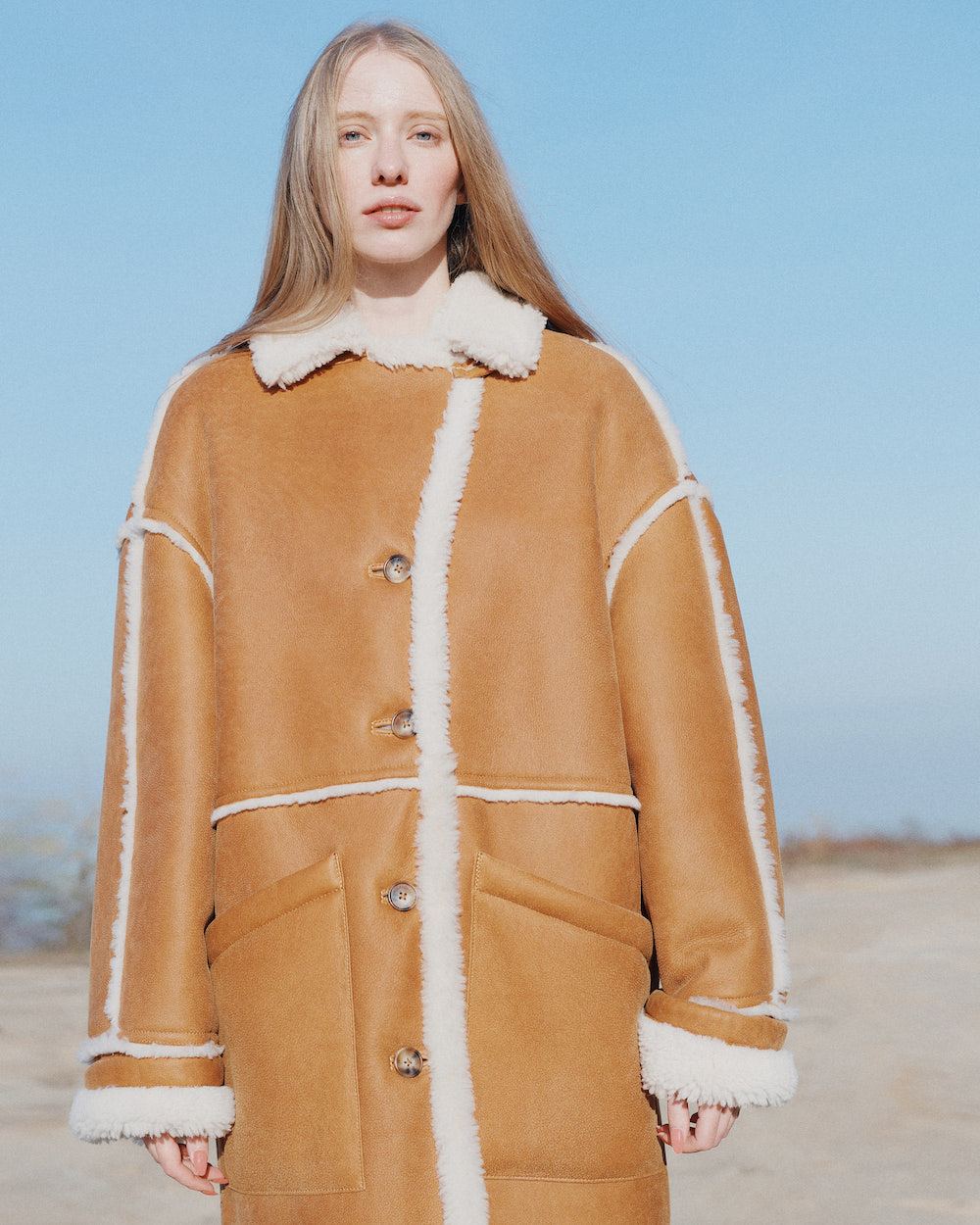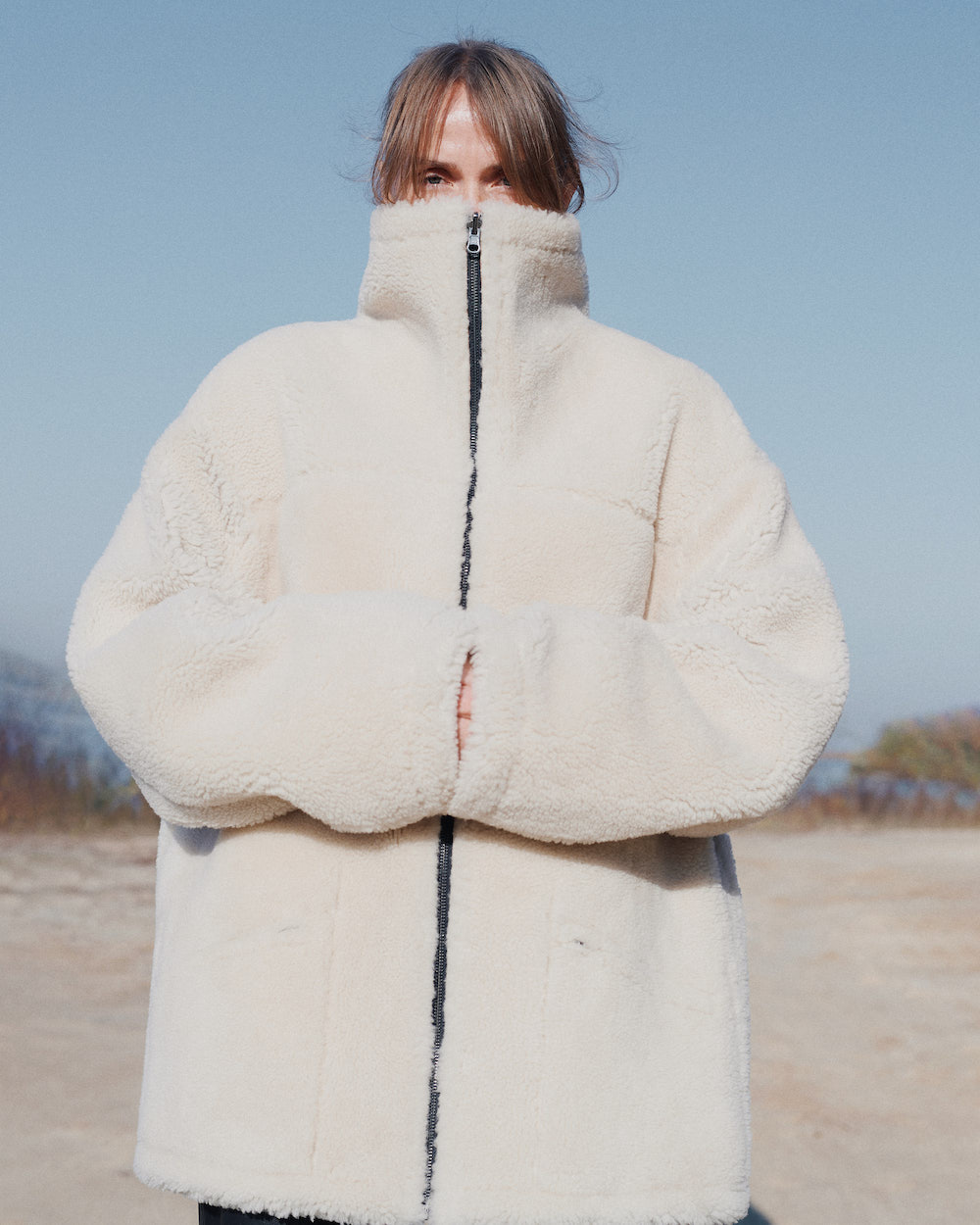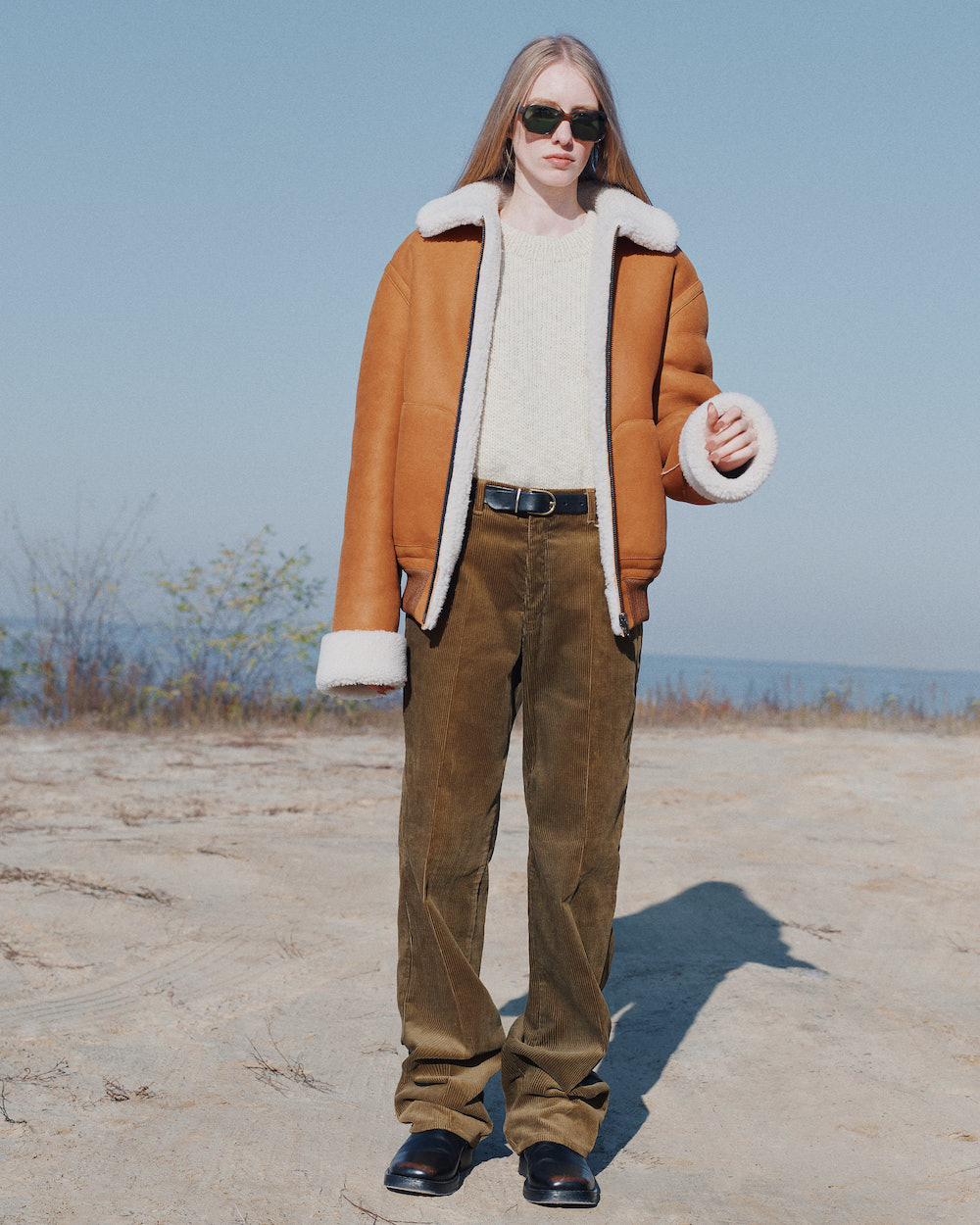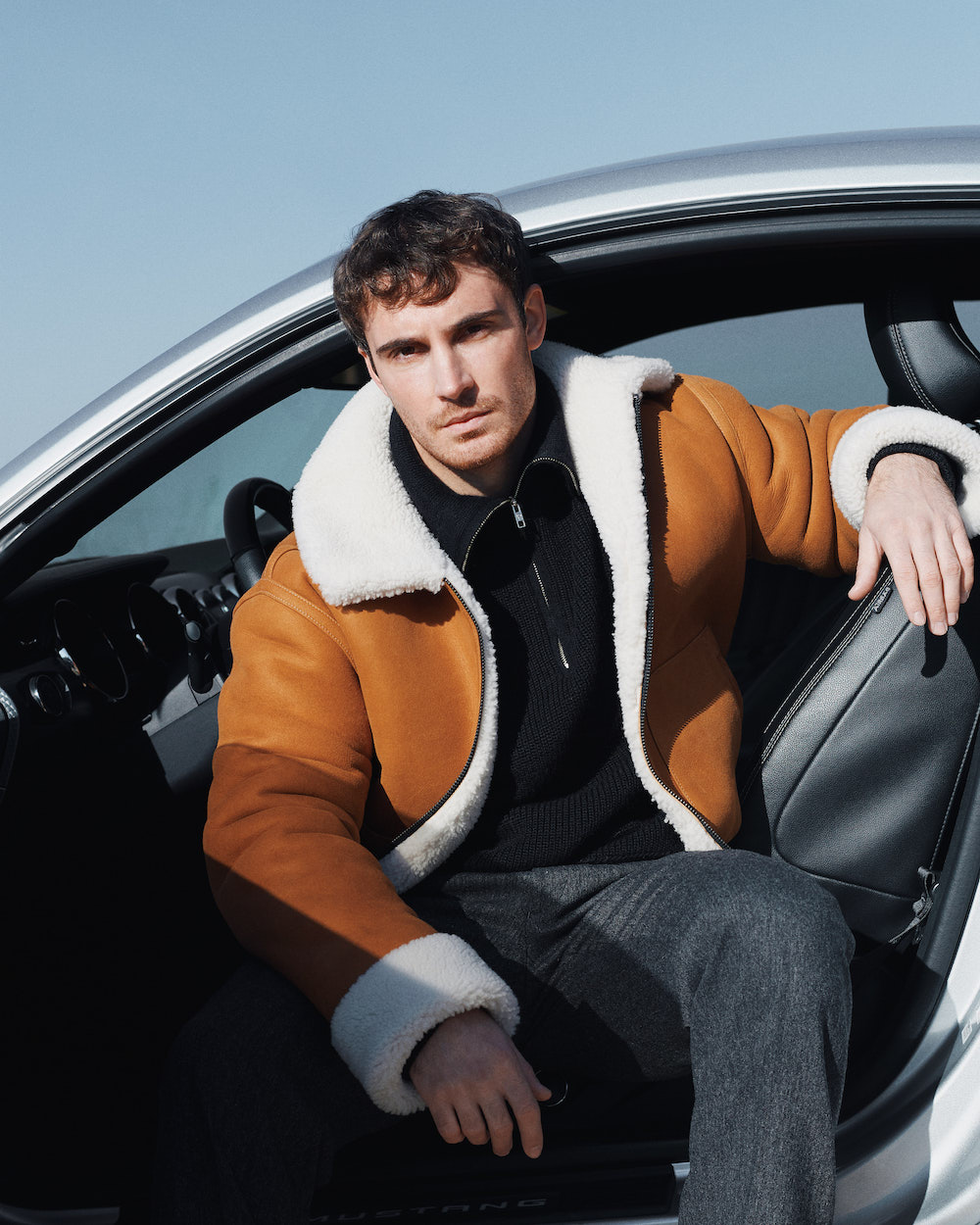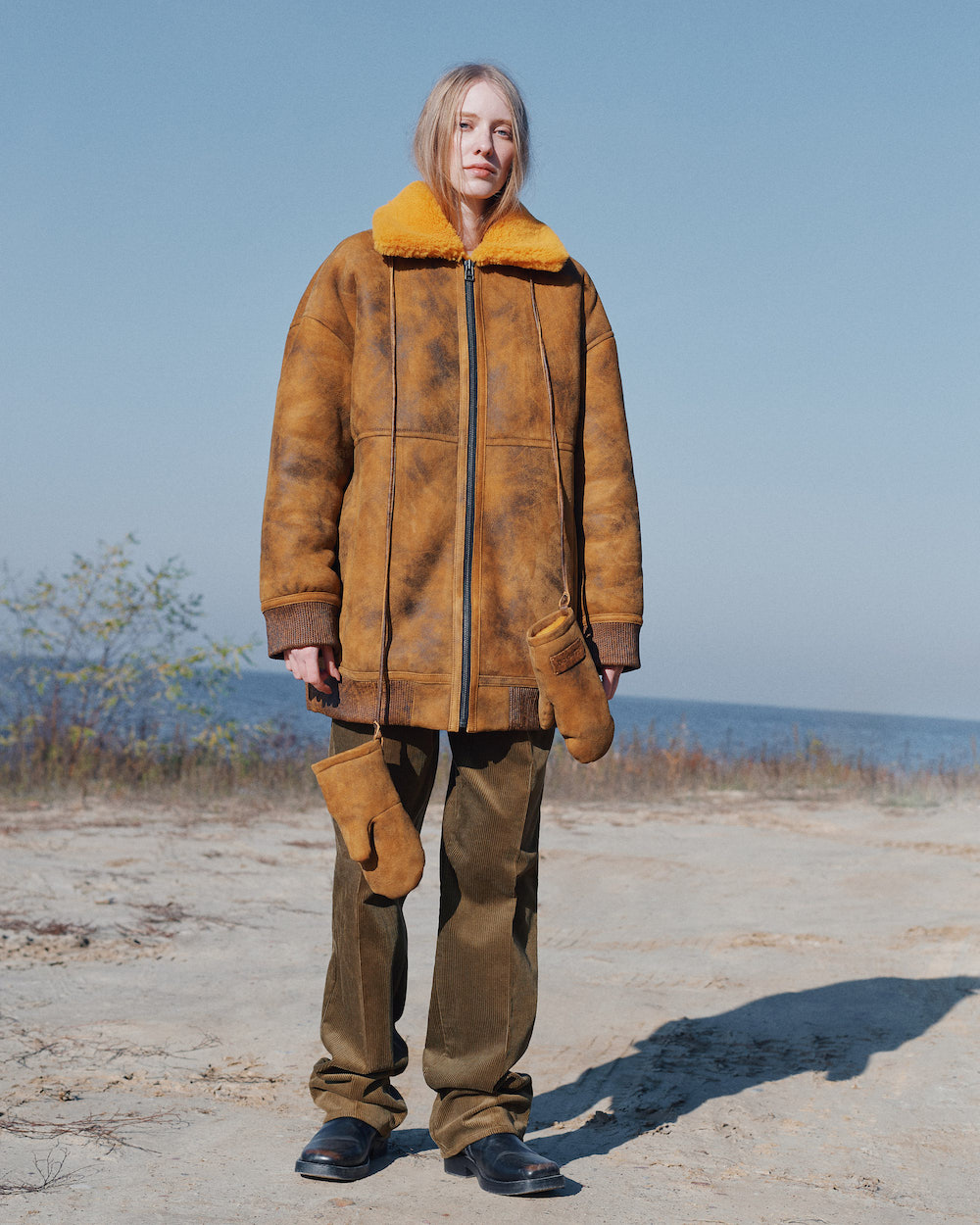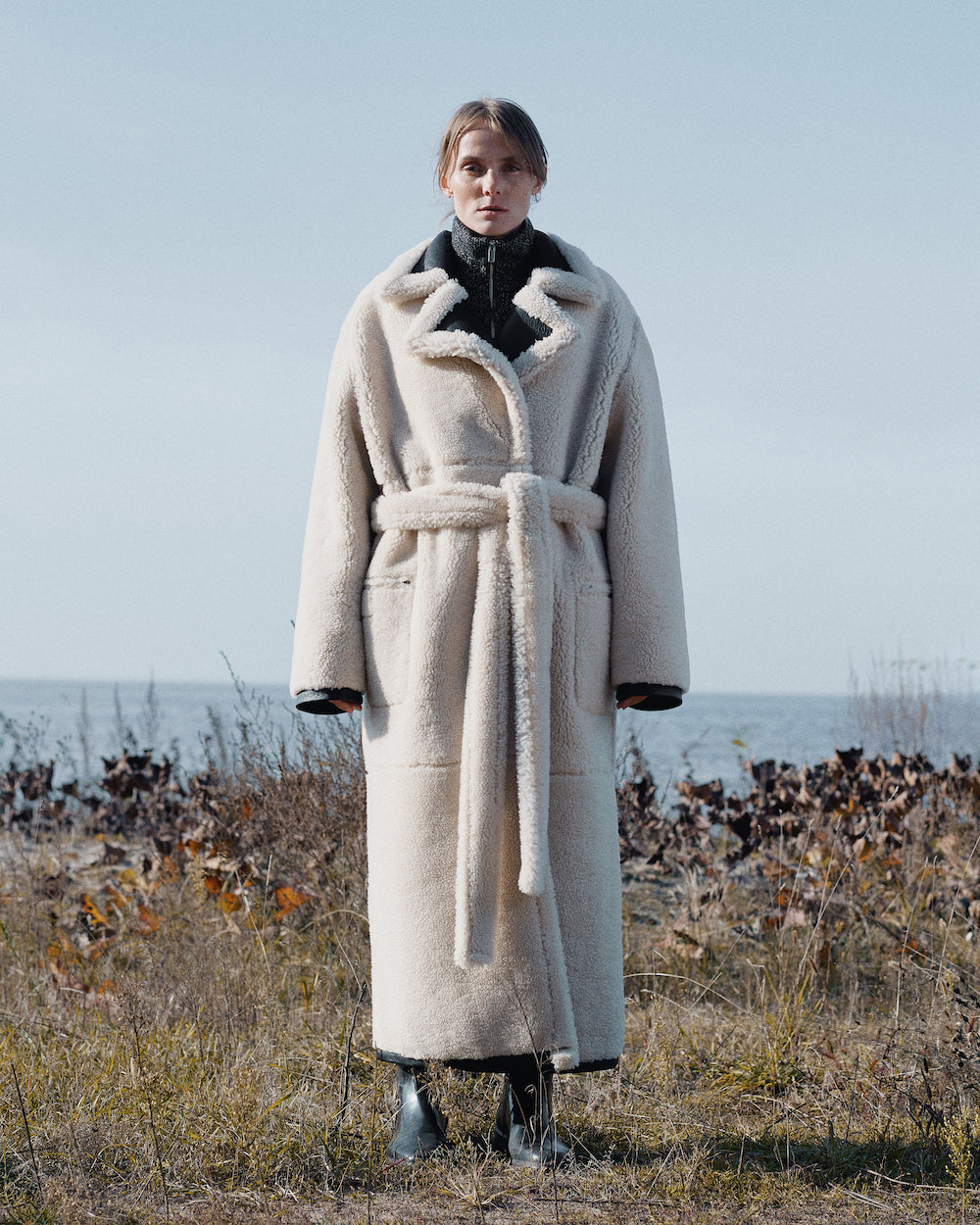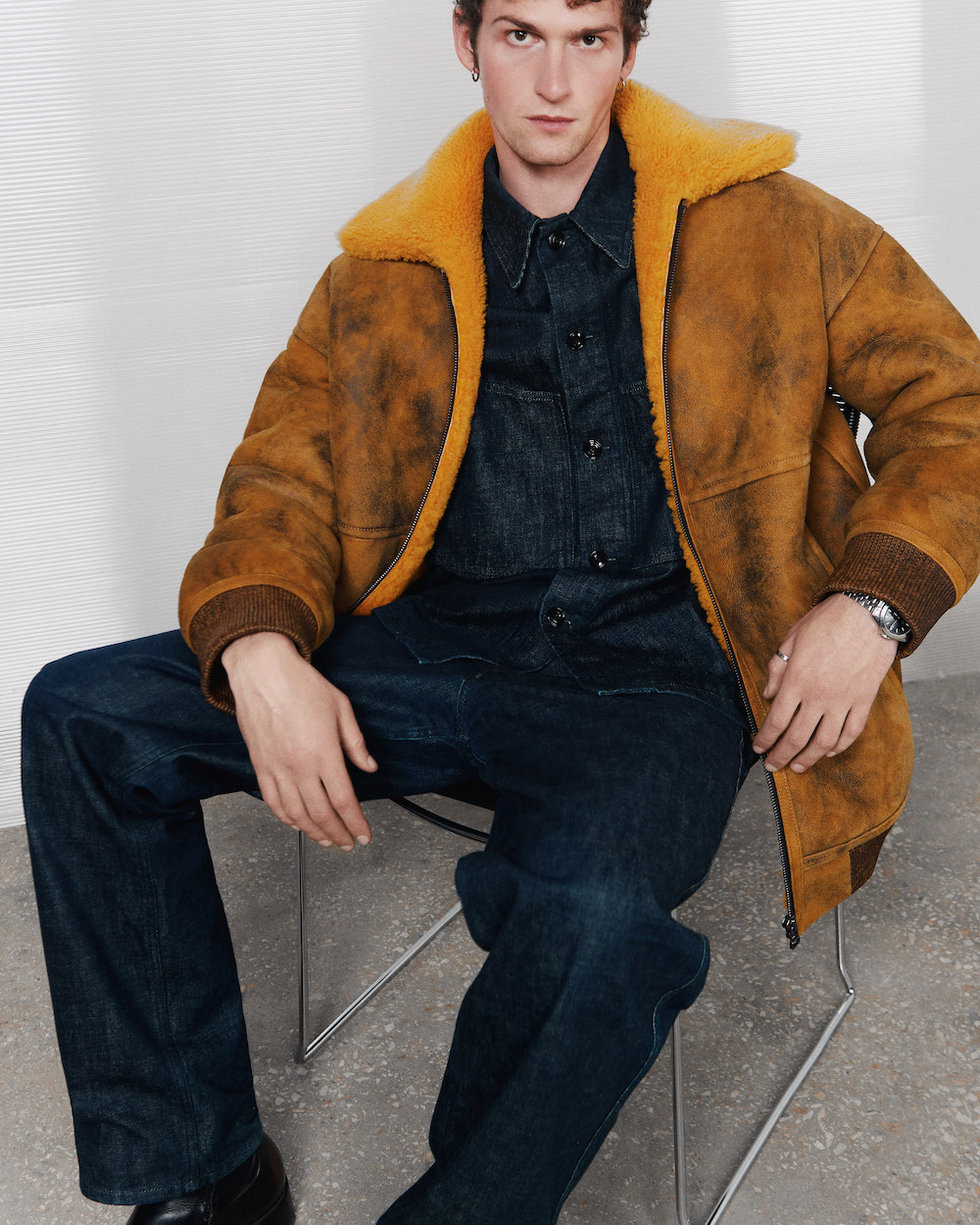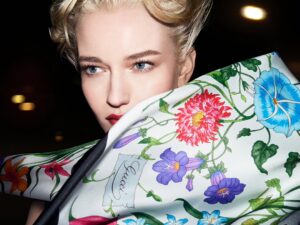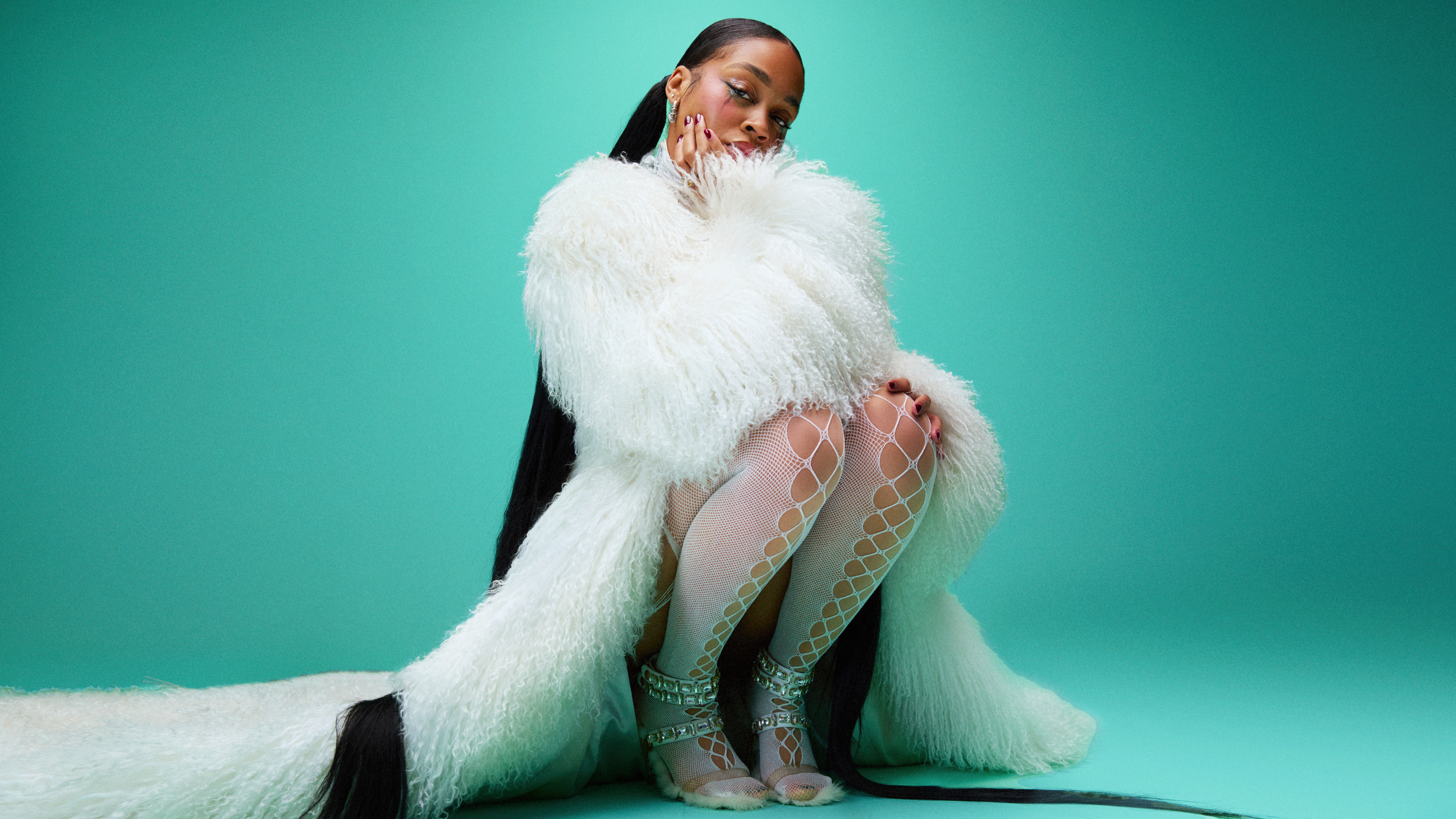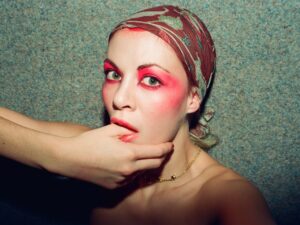Sad but true: We too rarely look at the creative scenes of other countries and what they have to offer. That’s why today we would like to give you a short overview of some Ukrainian brands that we find particularly noteworthy.
UKRAINIAN DESIGNERS TO WATCH
Picture courtesy of BOBKOVA x NEWEST Daniel Faro for Nowadays
Bobkova:
At the age of 23, she graduated from the Kyiv National University of Technologies and Design and founded her eponymous label Bobkova in the same year: Ukrainian Designer Kristina Bobkova has been showing her collections, including handmade accessories and shoes, at Ukrainian Fashion Week since 1998.
The latest collection, “Mriya” (eng: Dream), is dedicated to strong Ukrainian women. Taking place in the Kant garages with an industrial flair, the runway show was accompanied by DJane Nastya Vogan, who created a specially composed soundtrack for the collection’s spirit.
The 30 ready-to-wear looks are characterized by straight cuts that describe feminine silhouettes without being too playful. The knitwear pieces are a particular eye-catcher, contrasting sharply with the edgy blazers with boxy pockets. This interpretation of the military uniform is combined with sensual lace. We often see loose shirt-blouse dresses inspired by Vyshyvanka, the traditional Ukrainian undershirt with embroidery, in various deconstructions. Her standards are timeless, and her designs are consistent.
The colours are neutral, creamy, and earthy to copper, khaki and black. The designer uses materials such as wool, lace and jersey that are re- and upcycled; the patchwork fabrics are from textile and embroidery remnants from artisans. This reduces waste and highlights the wartime circumstances, such as power outages and air raid warnings, under which the collection was created in the Kyiv studio. Bobkova directly addresses the theme of the collections: she tells of Ukrainian women who are unintentionally confronted with struggles, survival and devotion to duty due to war. Reflecting bravery, pride, and strength yet showing vulnerability and the search for comfort, Bobkova tells the story after longing for peace in her homeland.
Picture courtesy of Getty Images
DZHUS:
In 2015, the brand was shortlisted for the International Woolmark Prize, won the Best Fashion Awards Ukraine for cruelty-free fashion in 2019, and a special prize at the Fashion Film Festival Kyiv for the eco-project “Unpacking” in 2021. All these awards do not show the sensation that the brand DZHUS presents on its runway shows.
Ukrainian designer and stylist Irina Dzhus founded the conceptual clothing and accessories brand DZHUS in 2010. Since the attack on Ukraine, she had to flee her homeland and found refuge in Warsaw, Paris and Berlin, where she works.
Her designs are internationally known for extravagant innovations and versatile cuts. Now she showed ten innovative looks, which the designer redesigned during the show. Each creation allows different styling options, representing the drastic changes in the lives of Ukrainians. Irina says that “the war has divided the life of every Ukrainian into a before and an after”. She symbolically represents this unwanted border and yet also unavoidable connection.
The AW23 collection consists of statement puffer jackets, maxi dresses and wide pants. The many zippers allow changing a short dress into an oversized coat with pockets sewn on. The garments become vests, headpieces and accessories; coats become jumpsuits, sleeves become hoods, and pants become dresses. Monochromes, earth and nude tones accentuate the dramatic texture of the designs, which come from tech-inspired materials. As a vegetarian-friendly and cruelty-free brand, DZHUS uses only ethical fabrics, such as textured cotton and knits, as well as contrasting sheer viscose and edgy pleats.
The brand initially conceived women’s clothing, but now many designs are unisex. In this collection, Irina Dzhus is also concerned about pointing out the change in personality due to the influence of higher power, which is why a fragile feminine look becomes a unisex silhouette and vice versa. The collection’s key element is a jumpsuit inspired by a bulletproof vest, which transforms into a coat, making the wearer look like a protector. Since the beginning of the war, DZHUS donates 30% of its profits to Ukrainian animal welfare organizations and the army.
Picture courtesy of Jordann Wood
LITKOVSKA:
In Ukrainian culture, spring is associated with rebirth and heralded with the so-called “Vesnianka” songs. Inspired by these songs, the latest collection of the brand LITKOVSKA is a tribute to the beauty of life and tells the story of new beginnings and individual development to adulthood in combination with nationality and culture. “Vesnianka” is also the collection’s name, which shows hope, fears and impacting decisions.
For founder Lilia Litkovska, Ukraine is an immense source of inspiration and creation. Since the invasion, the designer has been supporting projects in the country financially and artistically, raising awareness about the war and creating charity projects. She sees the country in a new beginning after a fundamental change, the outcome of which can give hope.
The SS’23 collection lies at the core of this concept: several garments are embroidered with lines from the poem “Prayer of a Ukrainian Patriot”, written in the 1930s by a political dissident in his blood on the walls of his cell. The 26 looks range from refined, asymmetrical cuts and comfort for everyday wear to youthful ease. Reflections on traditional Ukrainian costume, the designer combines straight blazers in a subtle striped pattern. Extravagant, intricately cut dresses paint charming silhouettes and prove high craftsmanship. Light cream and sky blue tones contrast with plain, bold black, which takes up the central part of the collection.
The location also plays an important role: the Feuerle Collection from 2016 by Désiré Feuerle and Sara Puig perfectly reflects the brand’s value. Located in a former World War II telecommunications bunker, the art institution in Berlin offers 8000 sqm of space for temporary exhibitions and permanent collections. The silence and possible isolation offer designer Lilia Litkovska the opportunity to search for answers within without having to react to external stimuli. For the third year, the Feuerle Collection participates in the Berlin Fashion Week program and supports young international designers.
Picture courtesy of Lina Grün
Jean Gritsfeldt:
One of the most successful designers in his home country, a star at the Berlin Fashion Week. In the spring of this year, he could not attend his show in Berlin, but now he was on the catwalk himself: Jean Gritsfeldt.
For him, fashion is an escape from reality and, at the same time, a weapon leading him in uncertain times. His statement pieces always resonate with a bit of criticism and provocation. He is not silent; he takes attention and addresses issues directly without beating around the bush. Jean Gritsfeldt is known for his extravagant and idiosyncratic colour combinations and connections of different textures and materials. Using the human body and skin, he mixes fashion with art, modelling, and sculpture. He lets his shows take place in unique settings: in Ukraine, he has already presented at the National Museum, in an auto centre or at the International Airport. In Berlin, he shows his latest collection at Kraftwerk Oberspree.
The first, very touching part of the collection “BORN IN KYIV. SCULPTOR OF LOVE” in times of the outbreak of war, now follows a tribute to his homeland in the second part. It shows how Ukraine can resurrect, is resilient and fragile simultaneously, and yet through love, can shine to new splendour in the end. Eliciting the inner superstar, his looks are bold, elegant in a destructive way, and always very personal. He reworked old archival designs, using materials from corduroy to linen, faux fur to silk.
His craftsmanship includes sequins, embroidery, and skilful and asymmetrical cuts. The designer works sustainably, using recycled fibres from PET bottles, for example, or uses plant-based dye. Messages from wartime are printed on the clothes or painted on the body; Jean Gritsfeldt combines the written word with art and makes provocative statements. After the performance show, he leaves the viewer with an uneasy yet slightly hopeful feeling.
Picture courtesy of Bagllet PR
Bagllet:
Bagllet is known for its straightforward and simple accessories. In 2013, founder Eugene Bernos launched the brand under the origin to give minimalism a new face and to focus on people who see beauty in detail. The designs of baguette and trapeze mini bags, tote bags or crossbody bags and backpacks in various sizes have a timeless vibe and are mostly made of scrap leather. The bags and accessories are made handcrafted in the leather workshop in Kyiv. The iconic bags are high-quality accessories that perfectly complement the style of both men and woman.
Picture courtesy of KULAKOVSKY PR
KULAKOVSKY:
In their latest Fall/Winter collection 22/23, the Ukrainian brand KULAKOVSKY shows that beautiful style, skilful design, and extraordinary outerwear go hand in hand. The unisex looks warm up in freezing winter temperatures, just to name two: the sheepskin hoodie with drawstring hem or the shearling shirt. The “koshukh” is made of red sheepskin and decorated with whipstitches, as tradition shows. It finds its place at KULAKOVSKY, as well as the double-sided shearling midi wrap coat made of very thick British sheepskin and the cape jacket with details on sleeves and side seams. The garments are inspired by the designer’s home and countryside and hold up against cold temperatures. Hats and gloves as accessories complete all looks.
